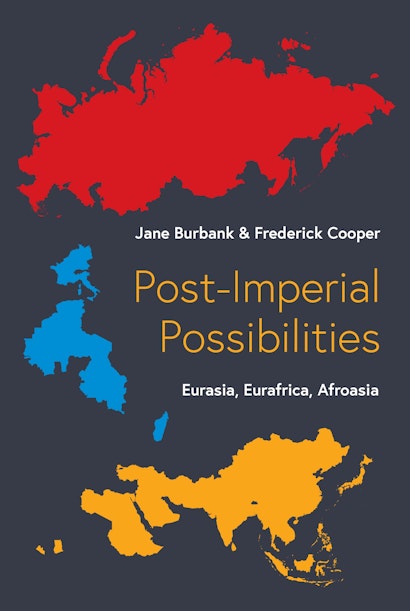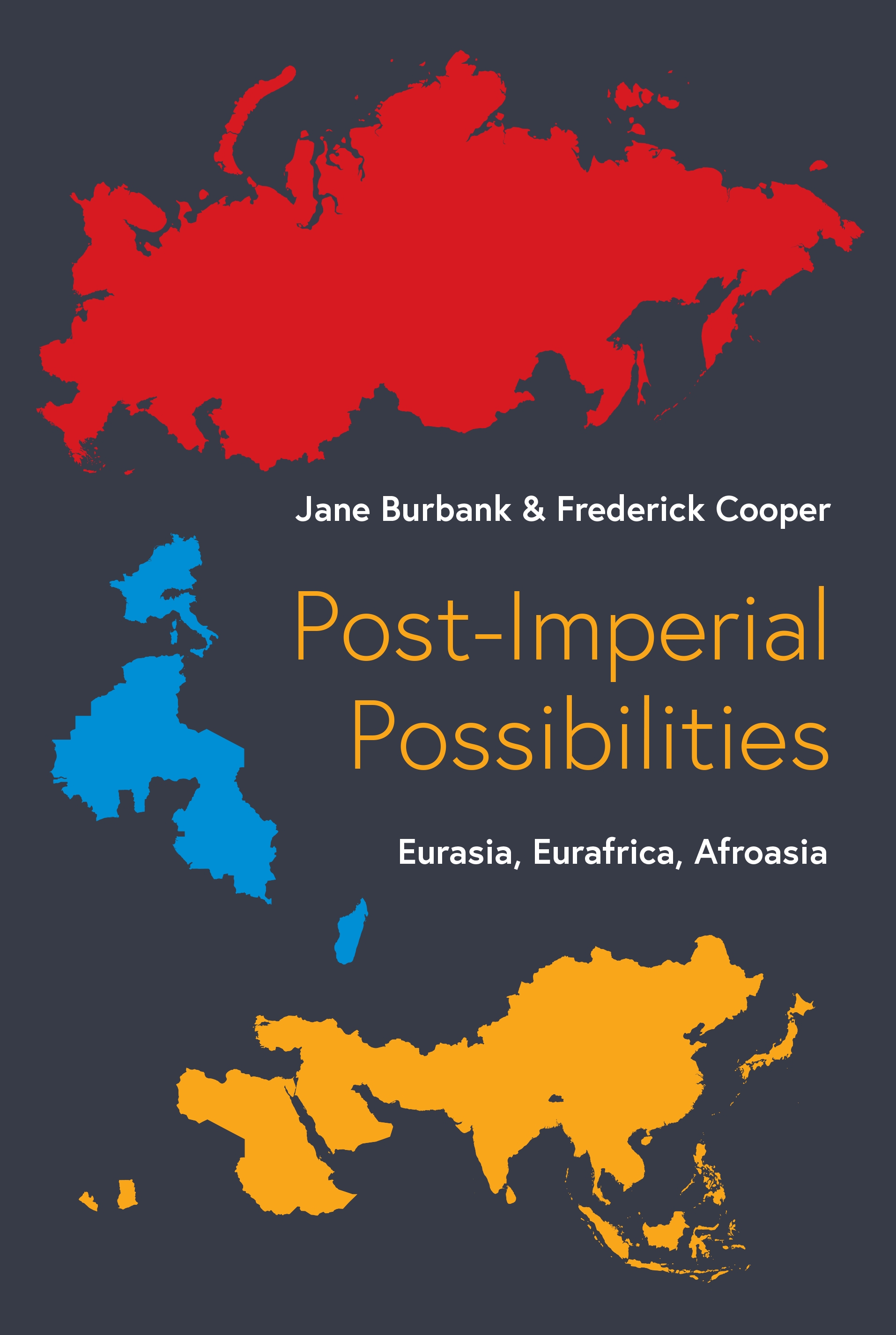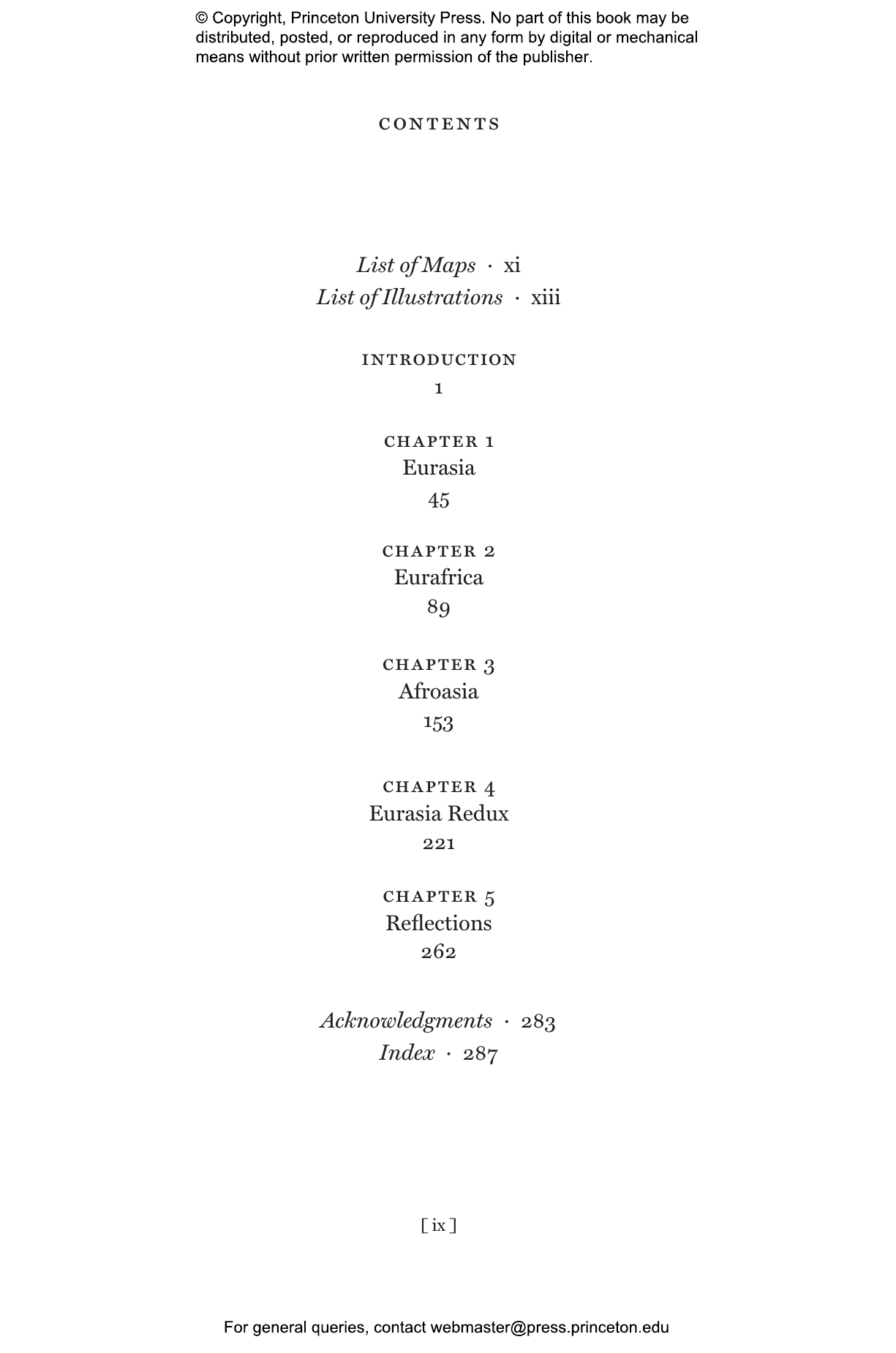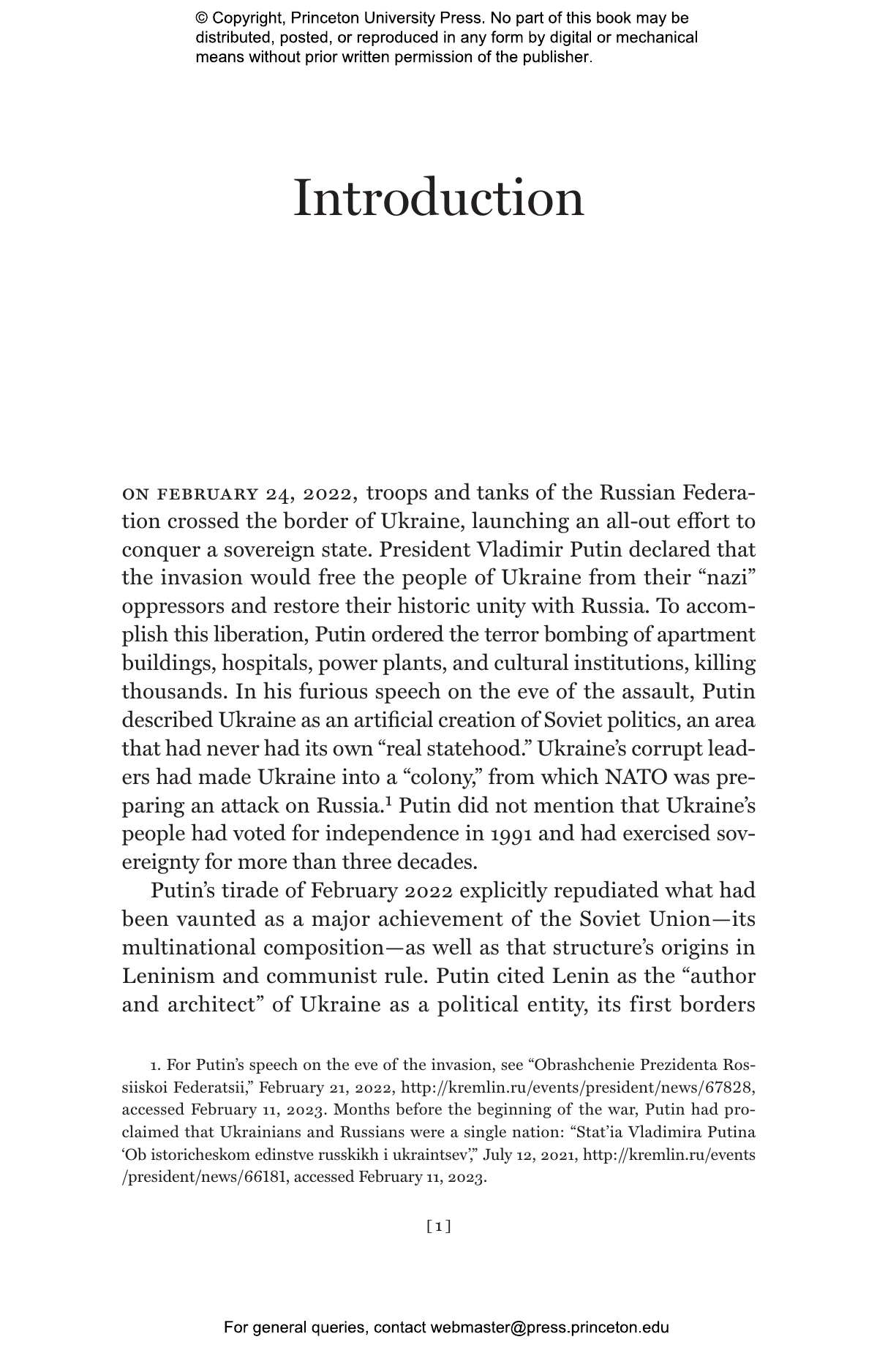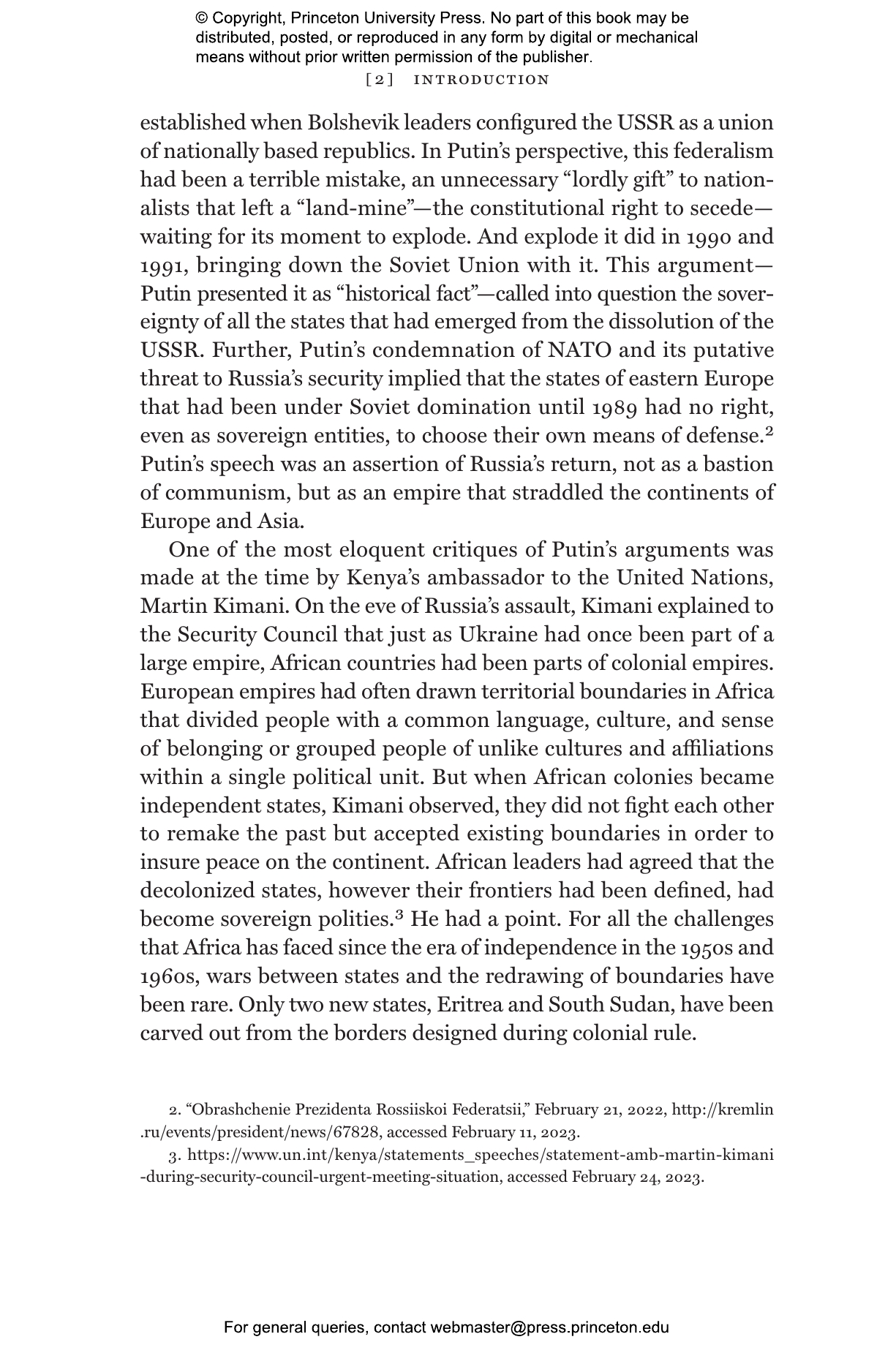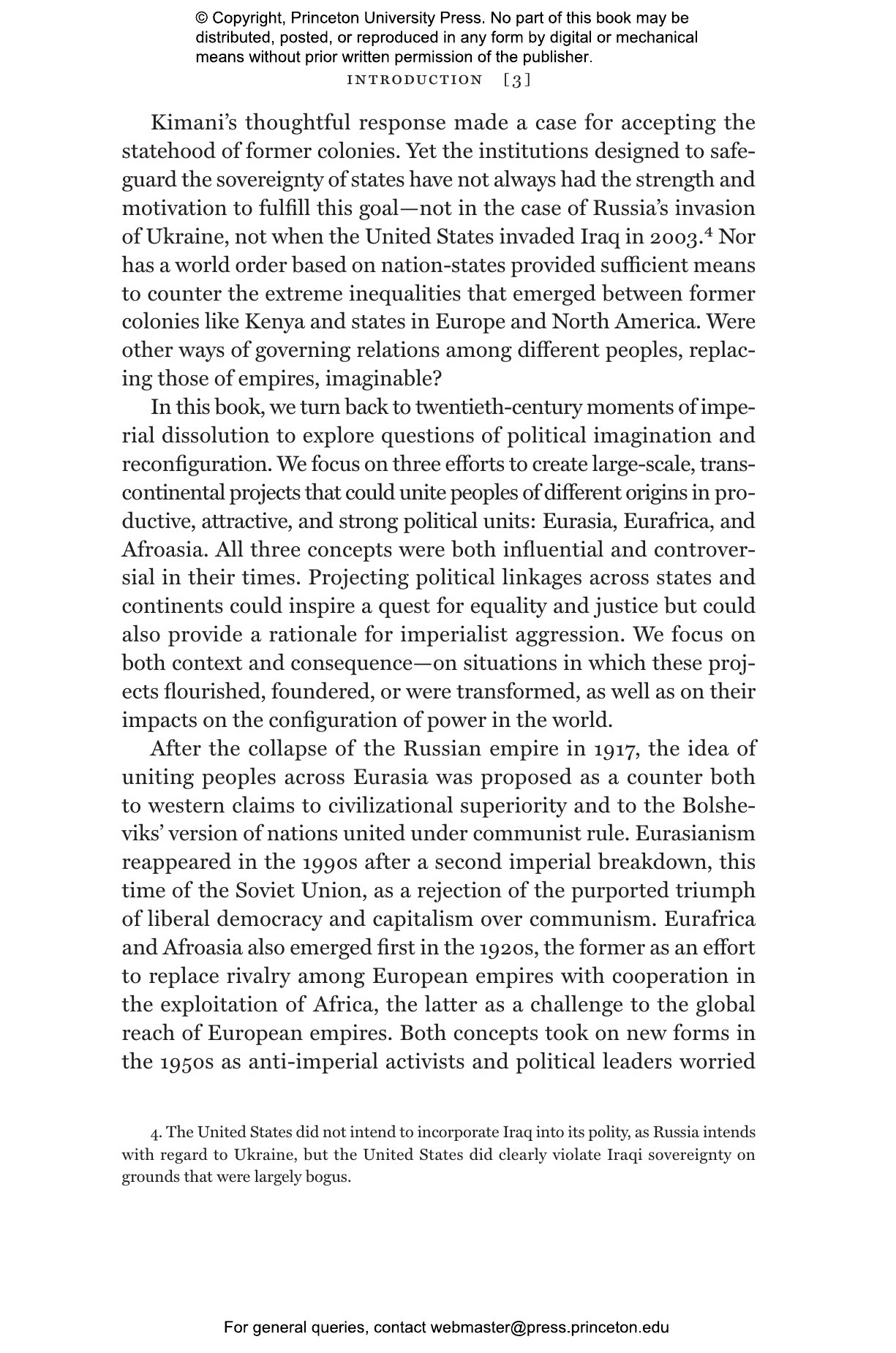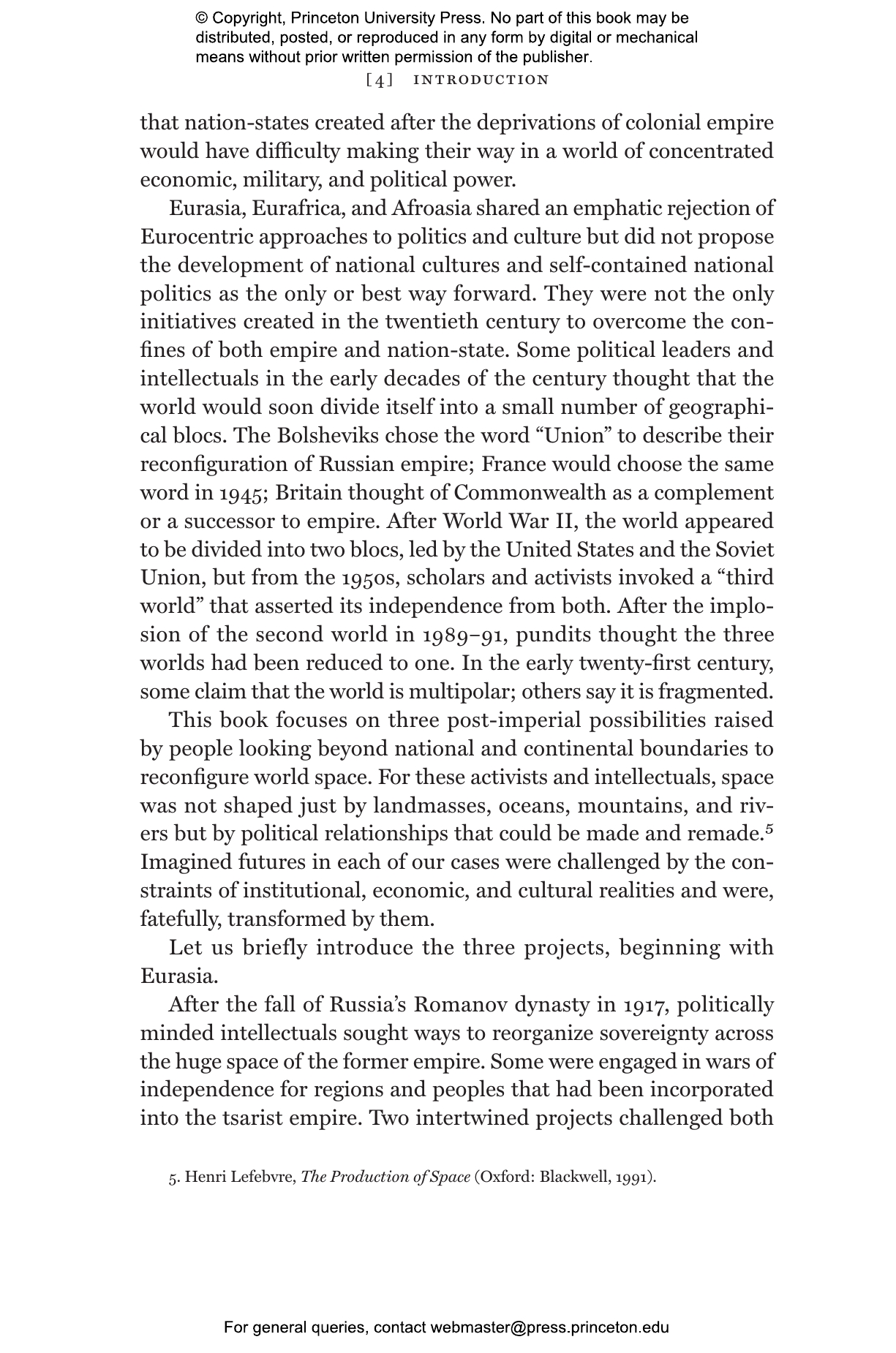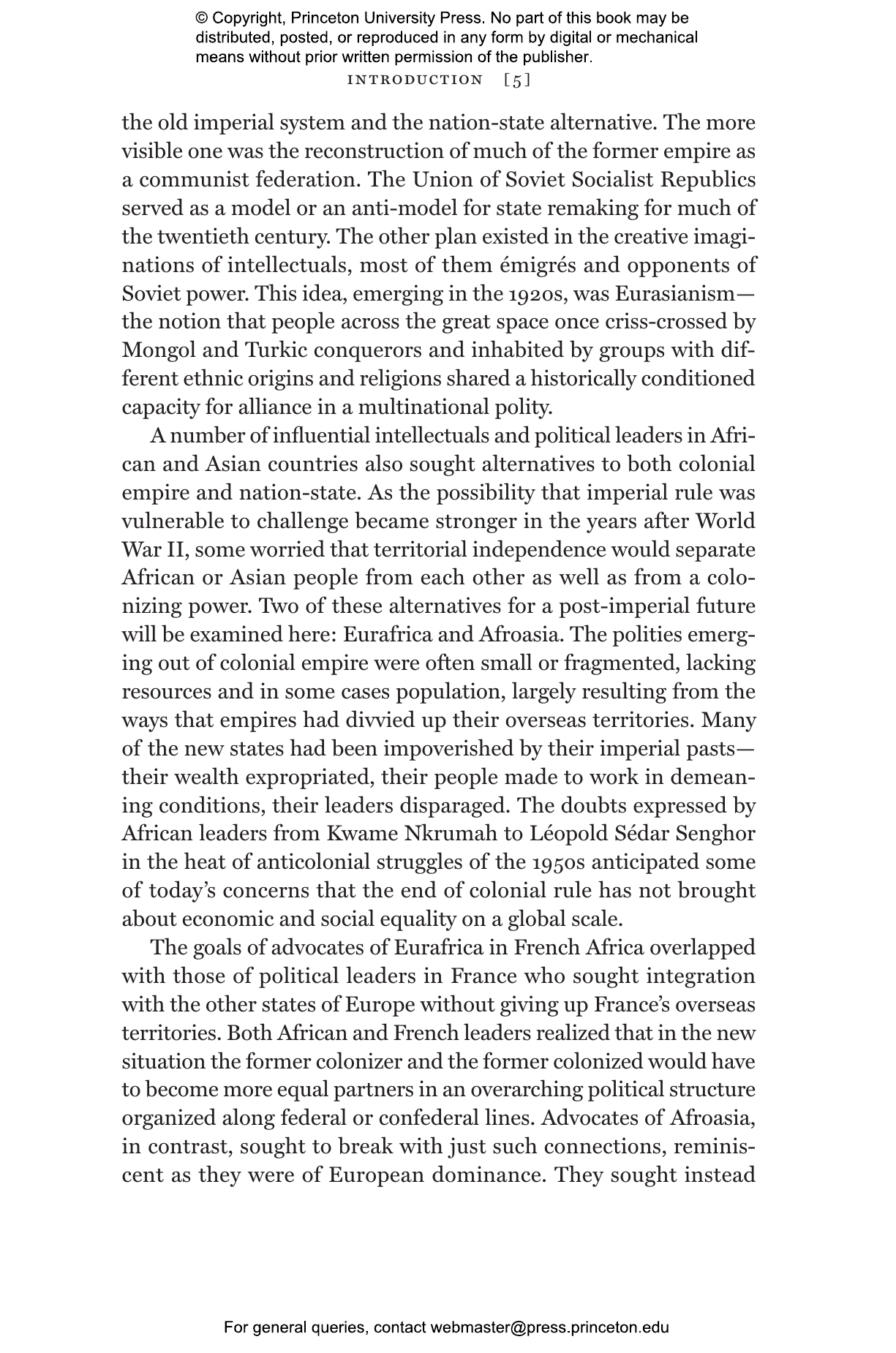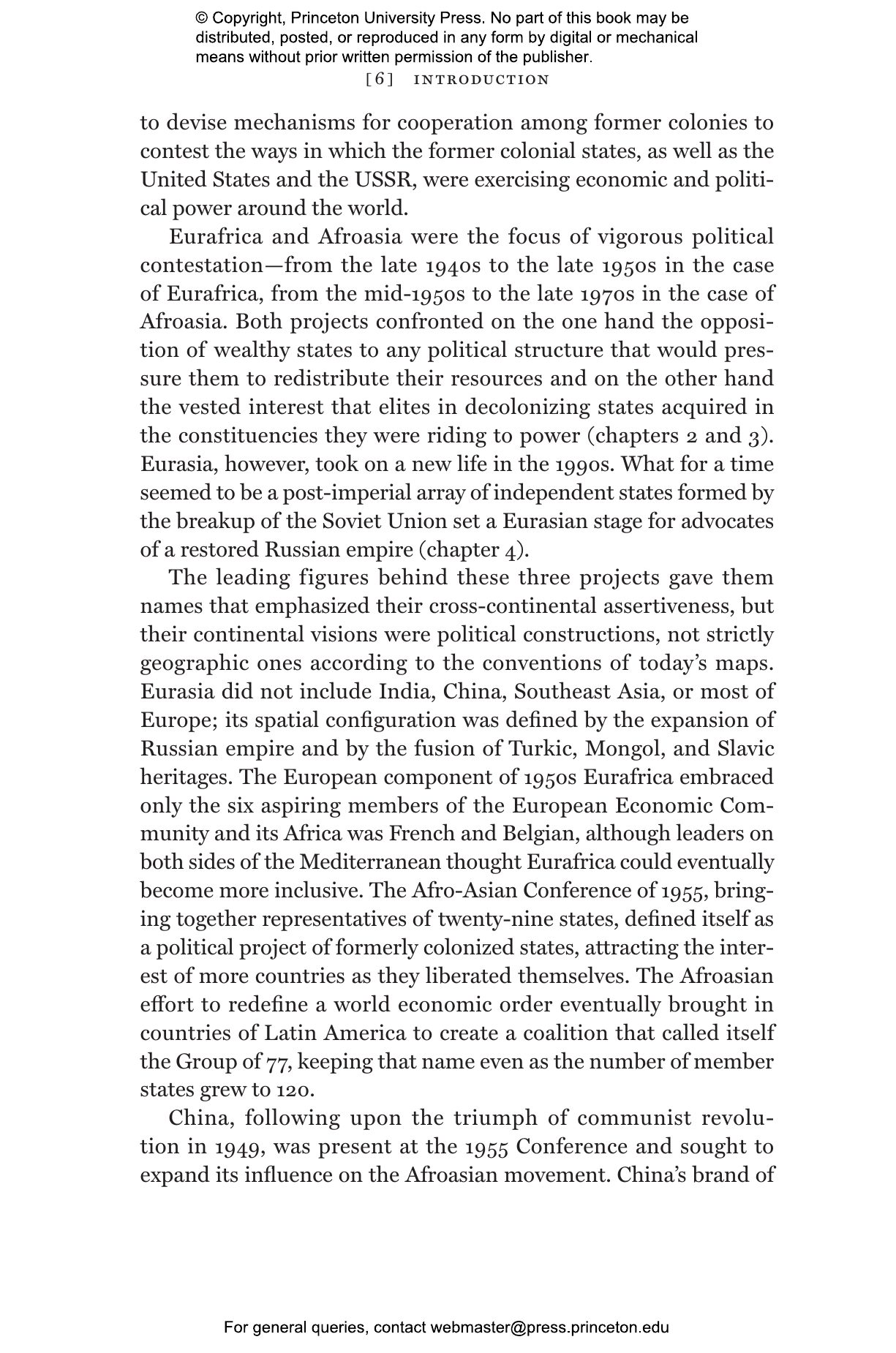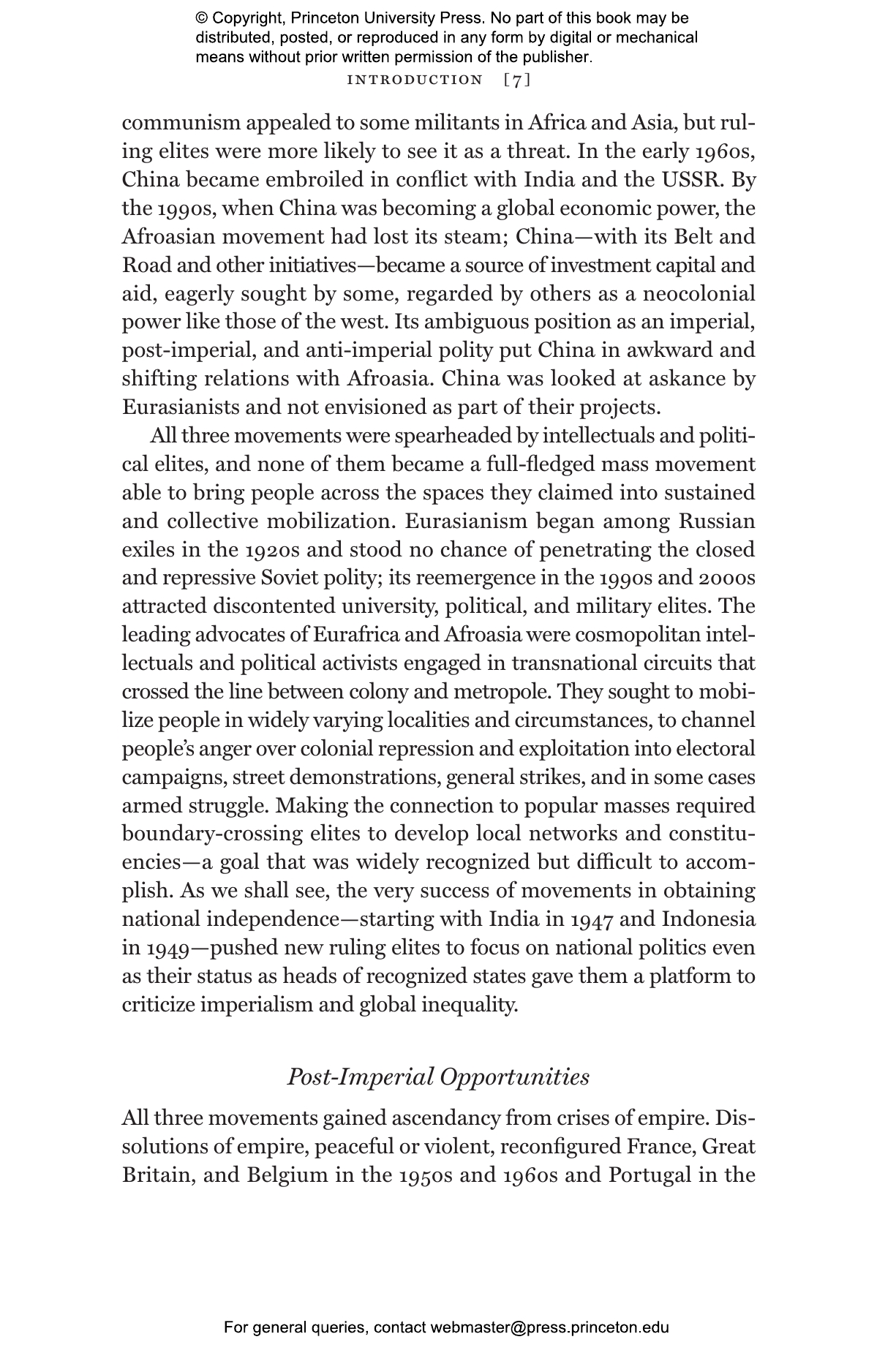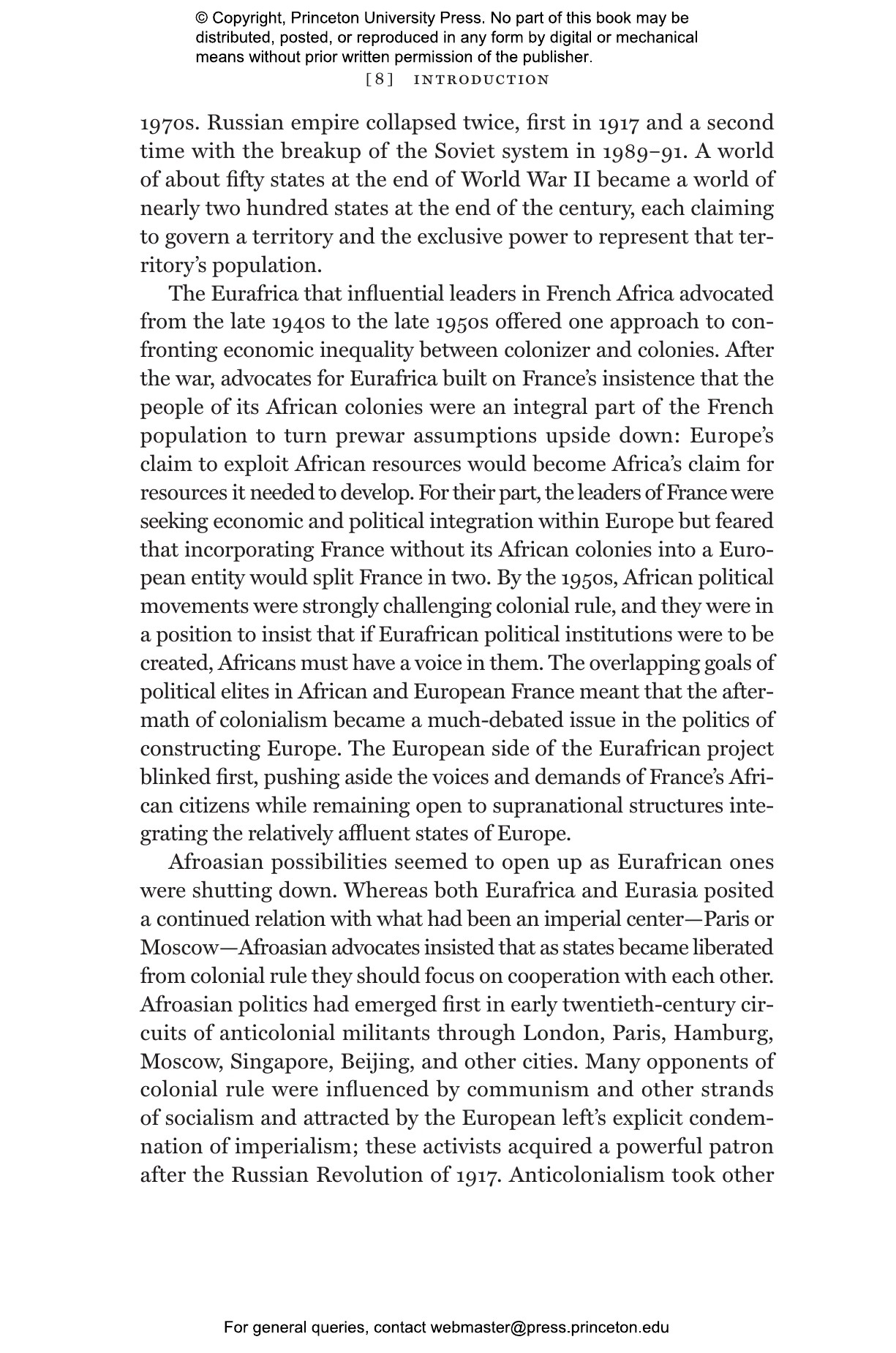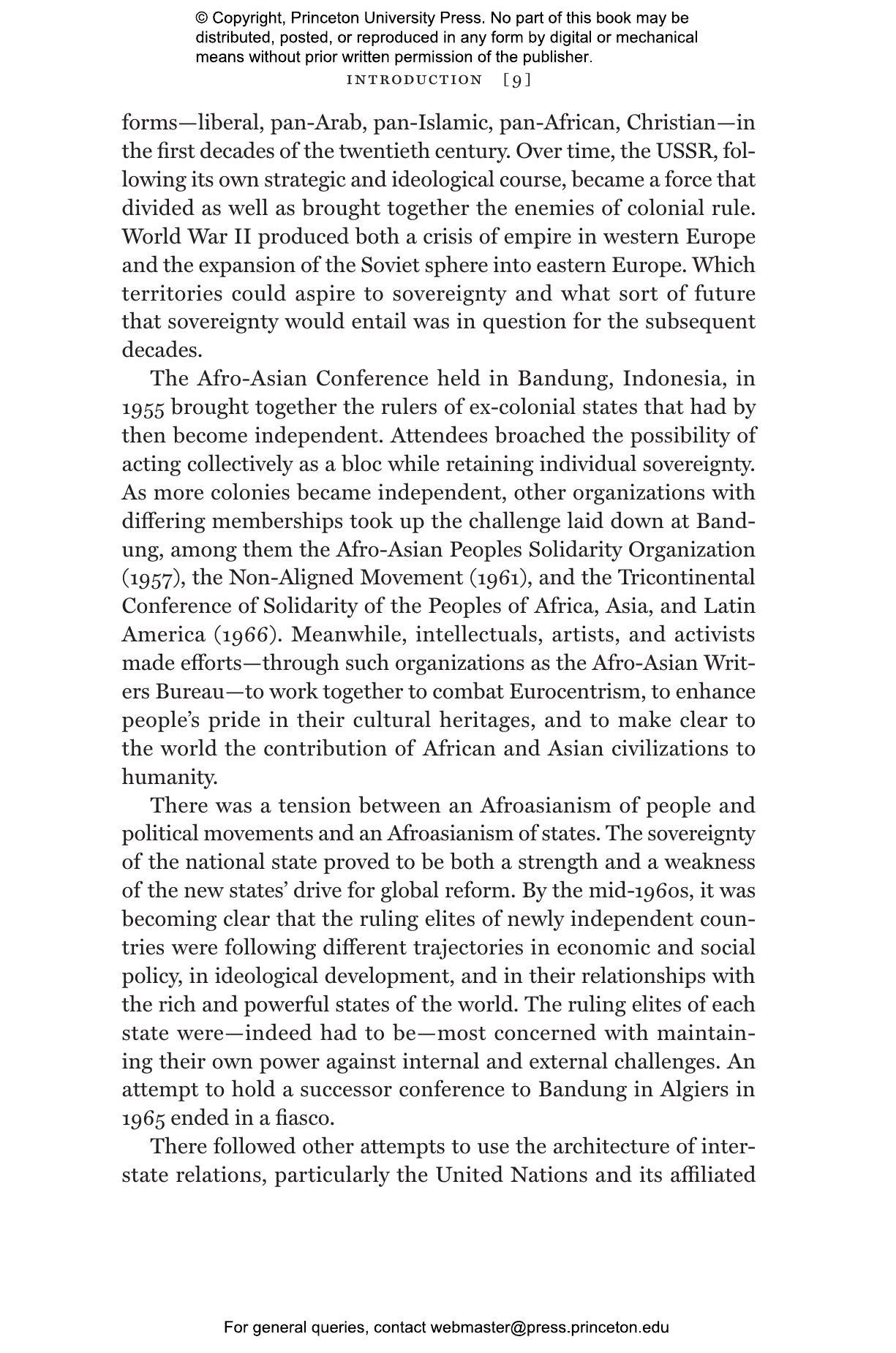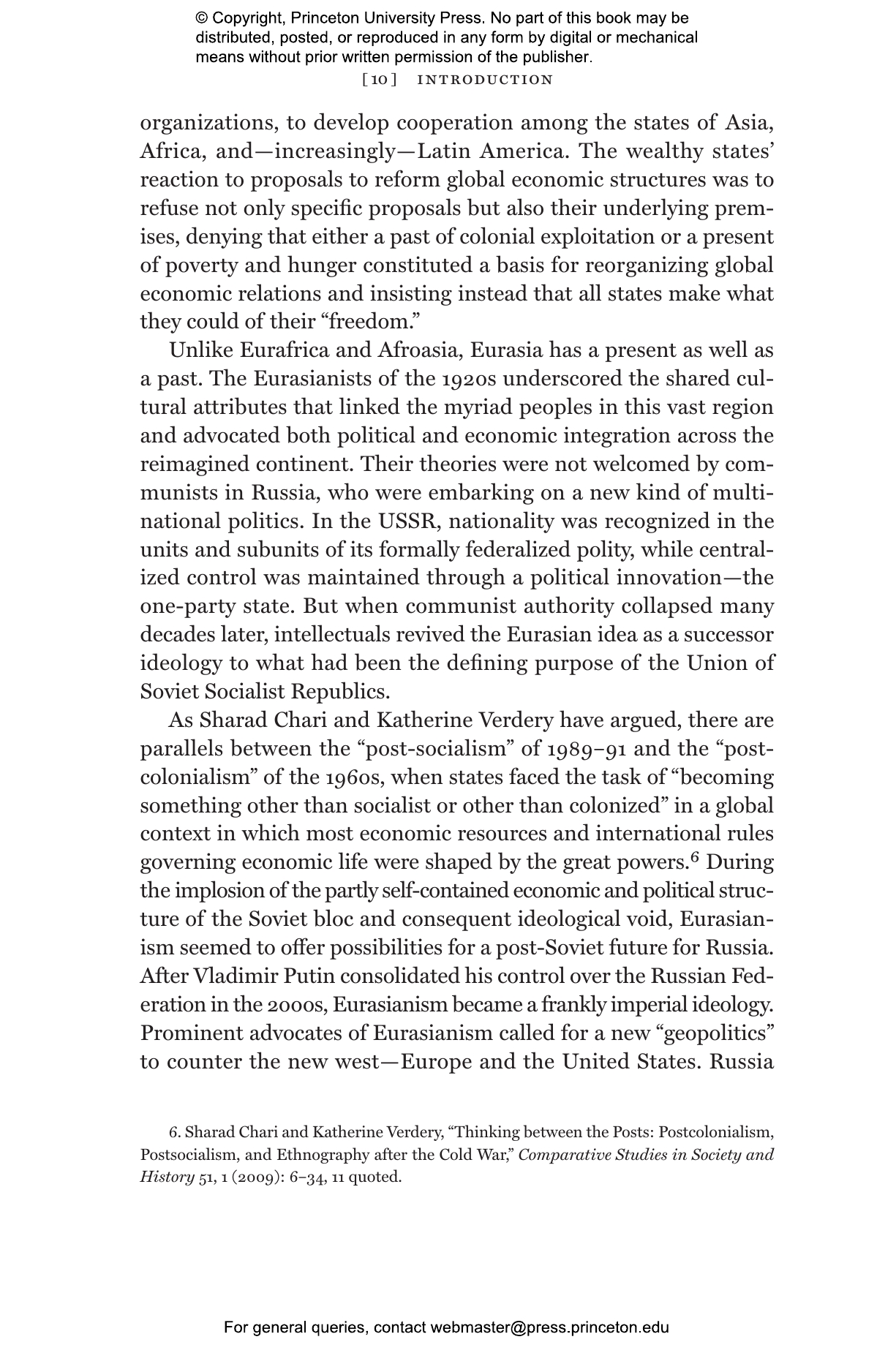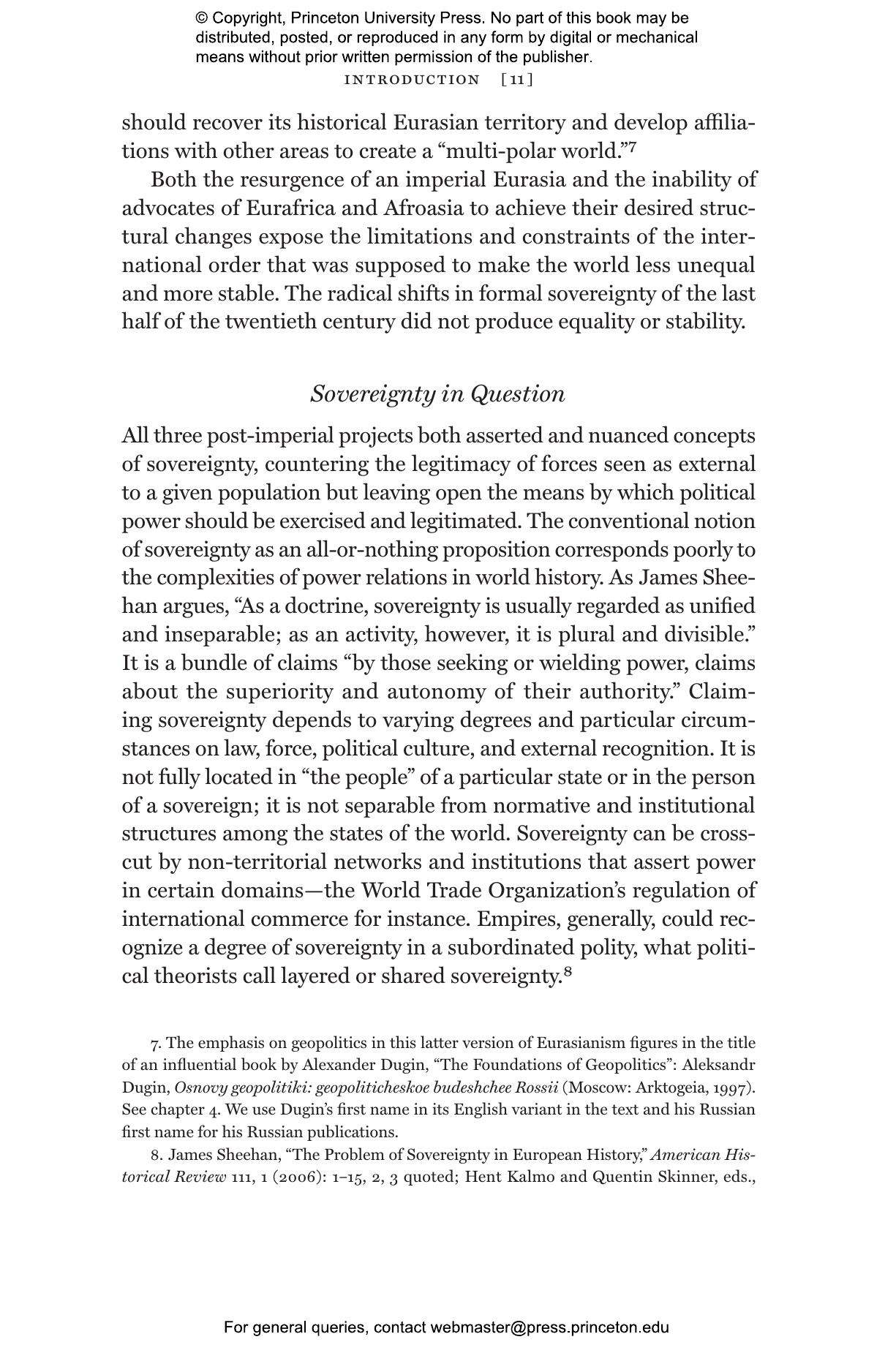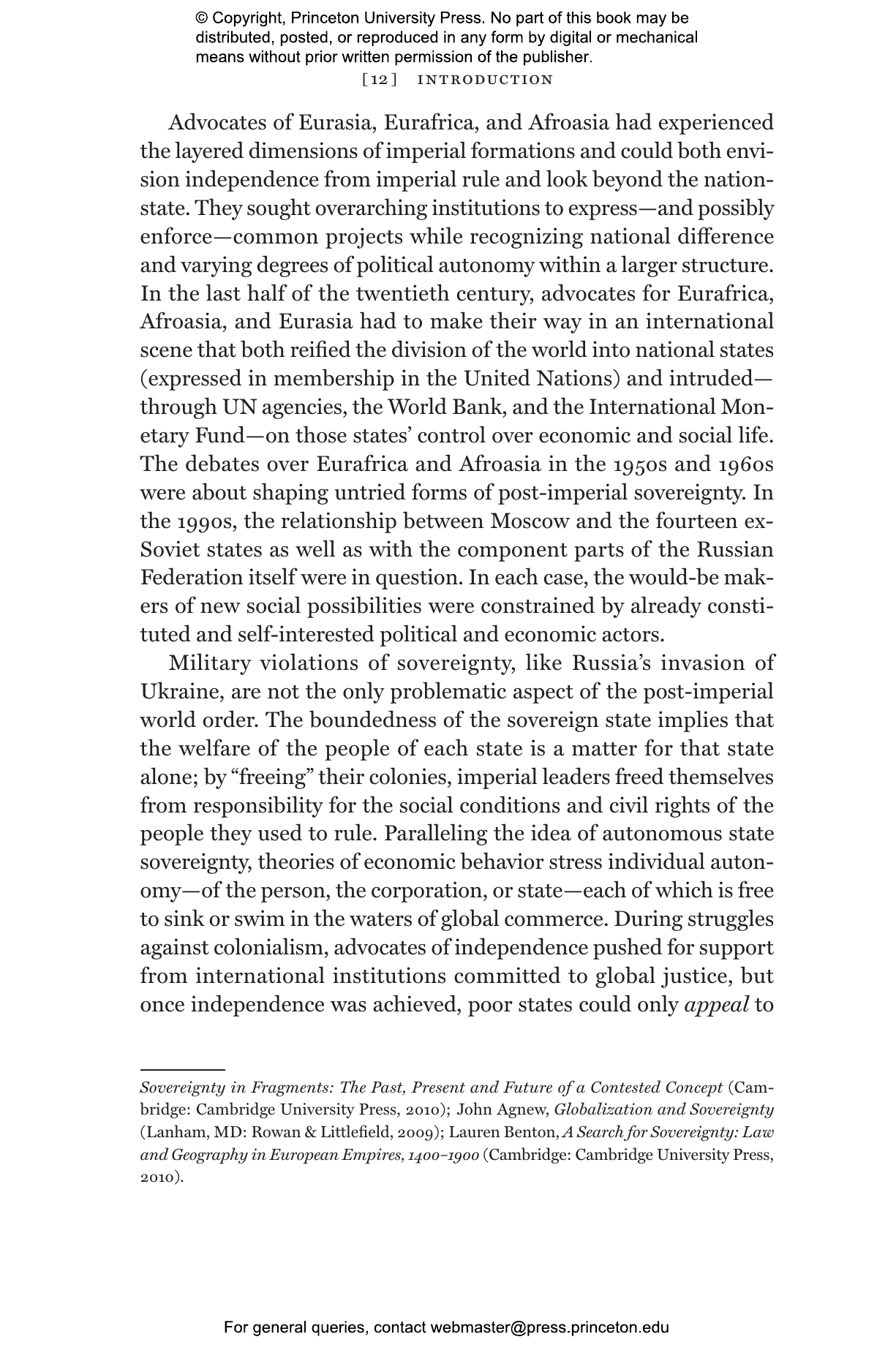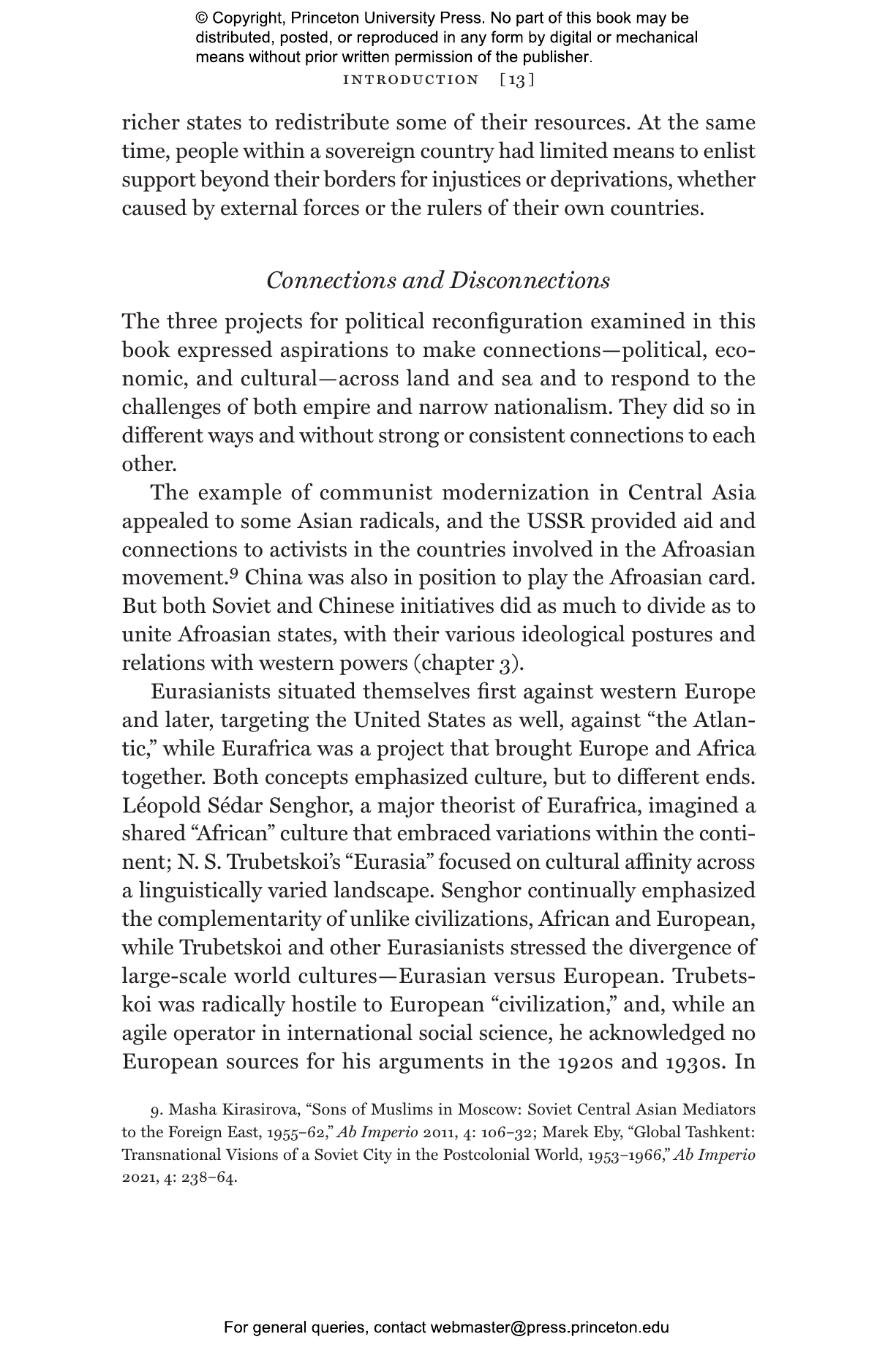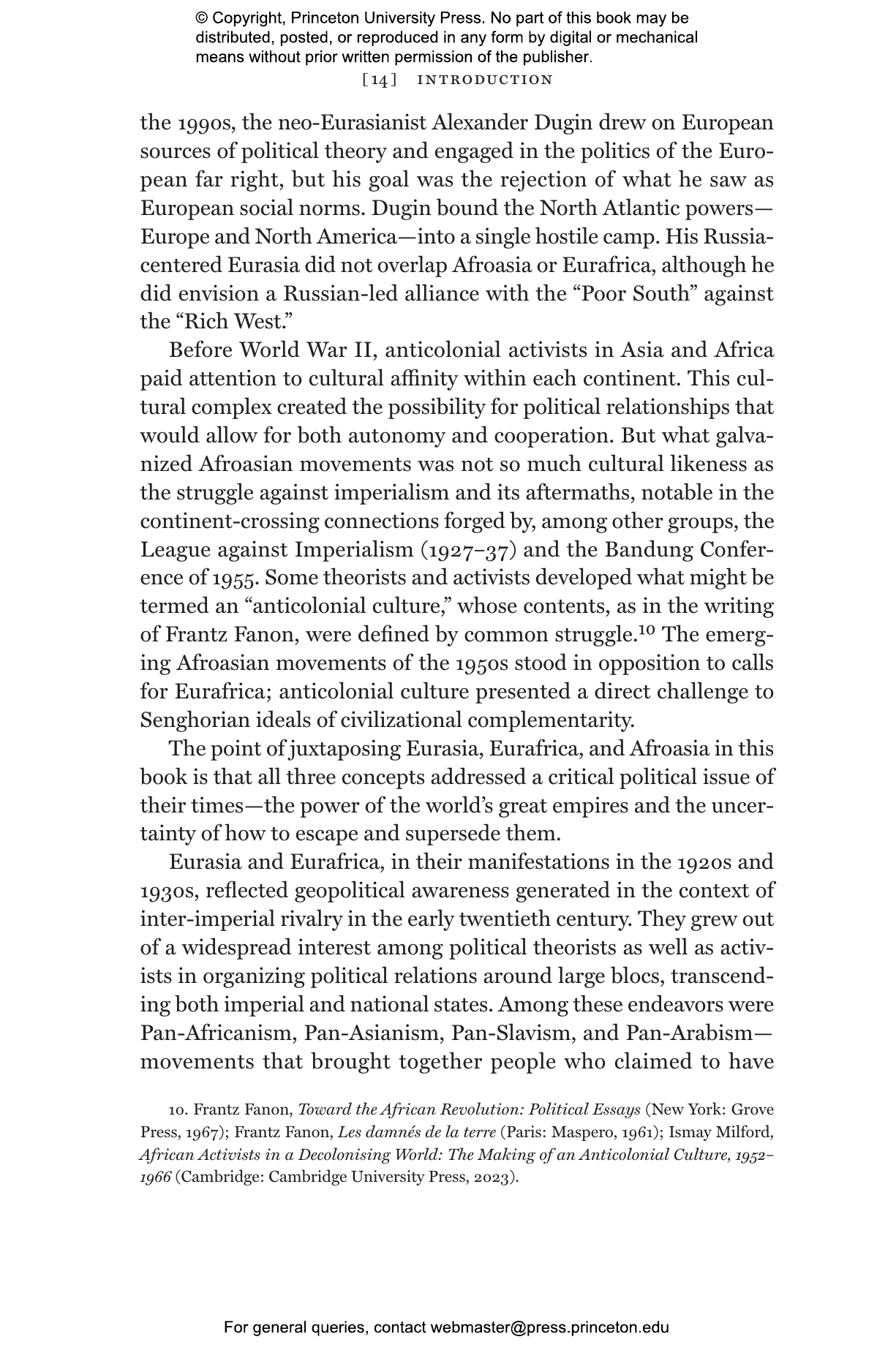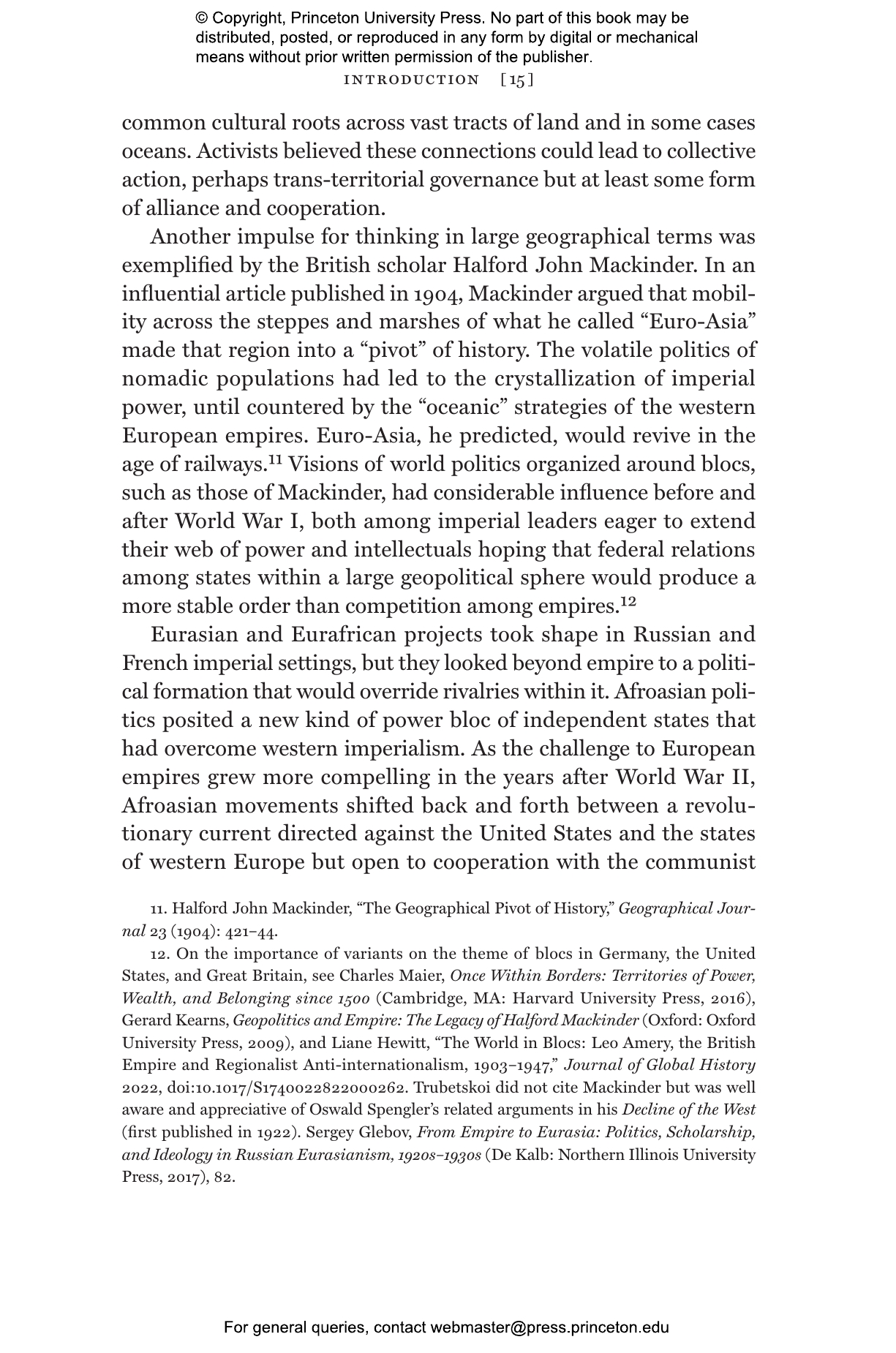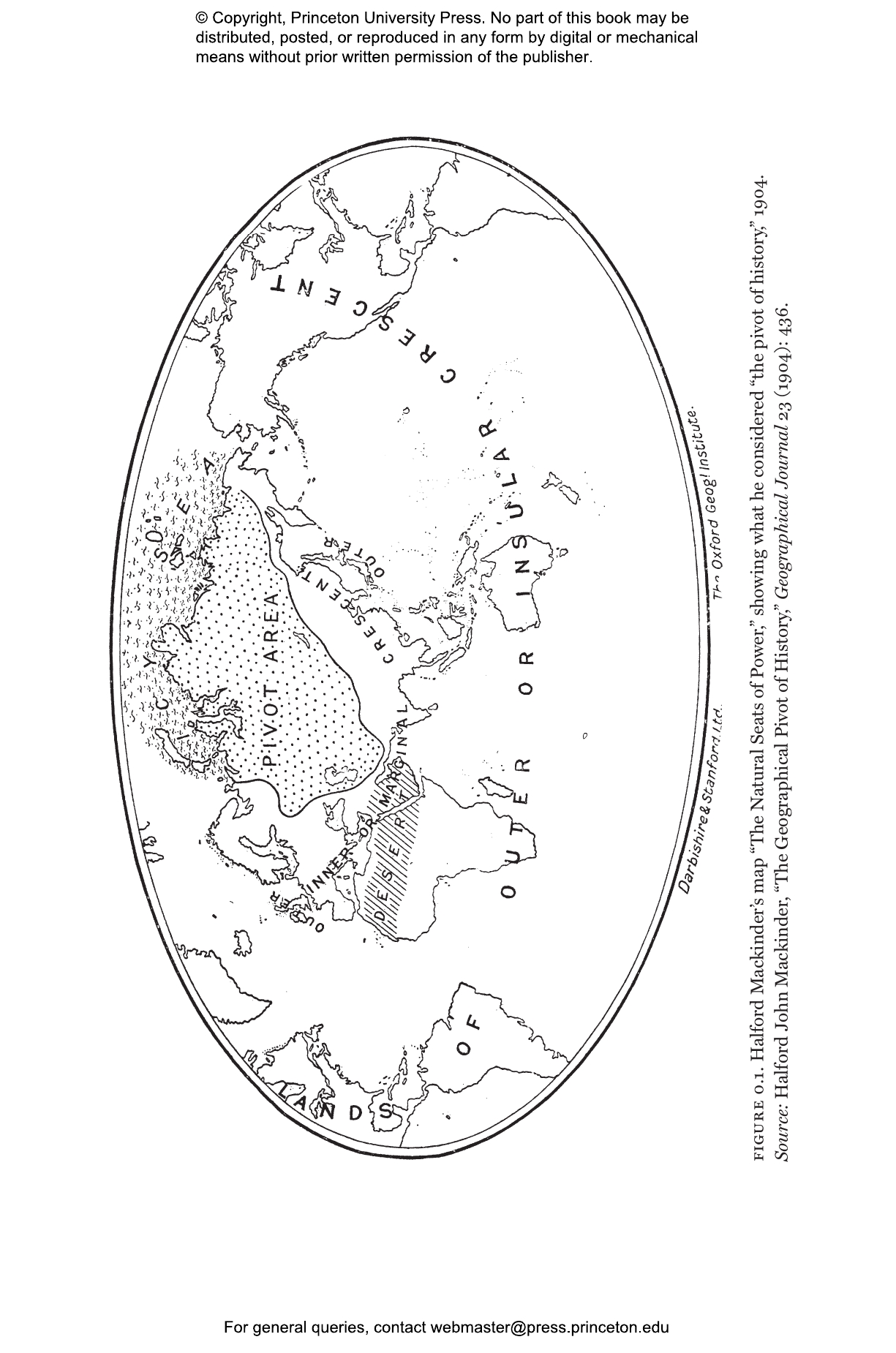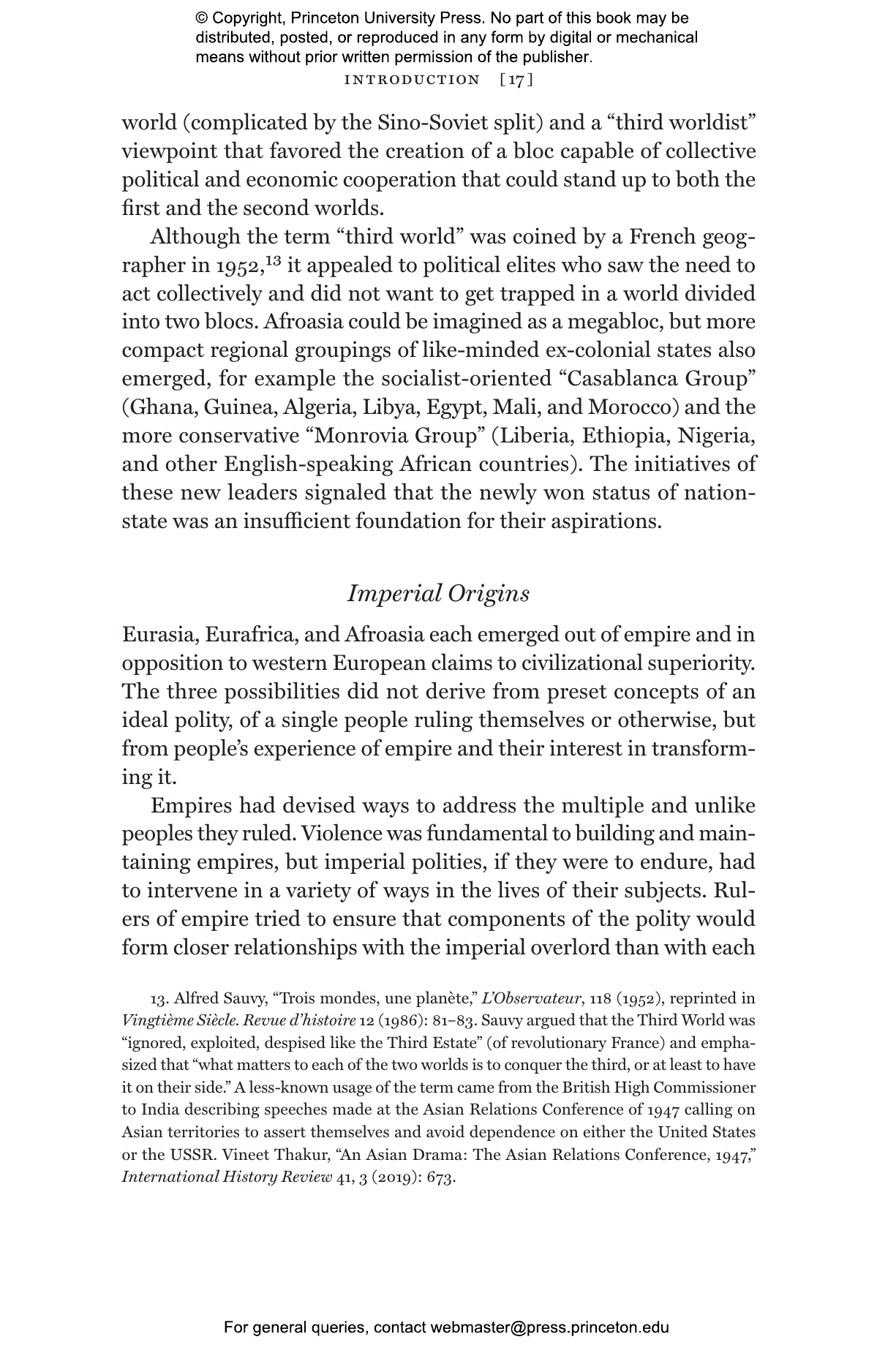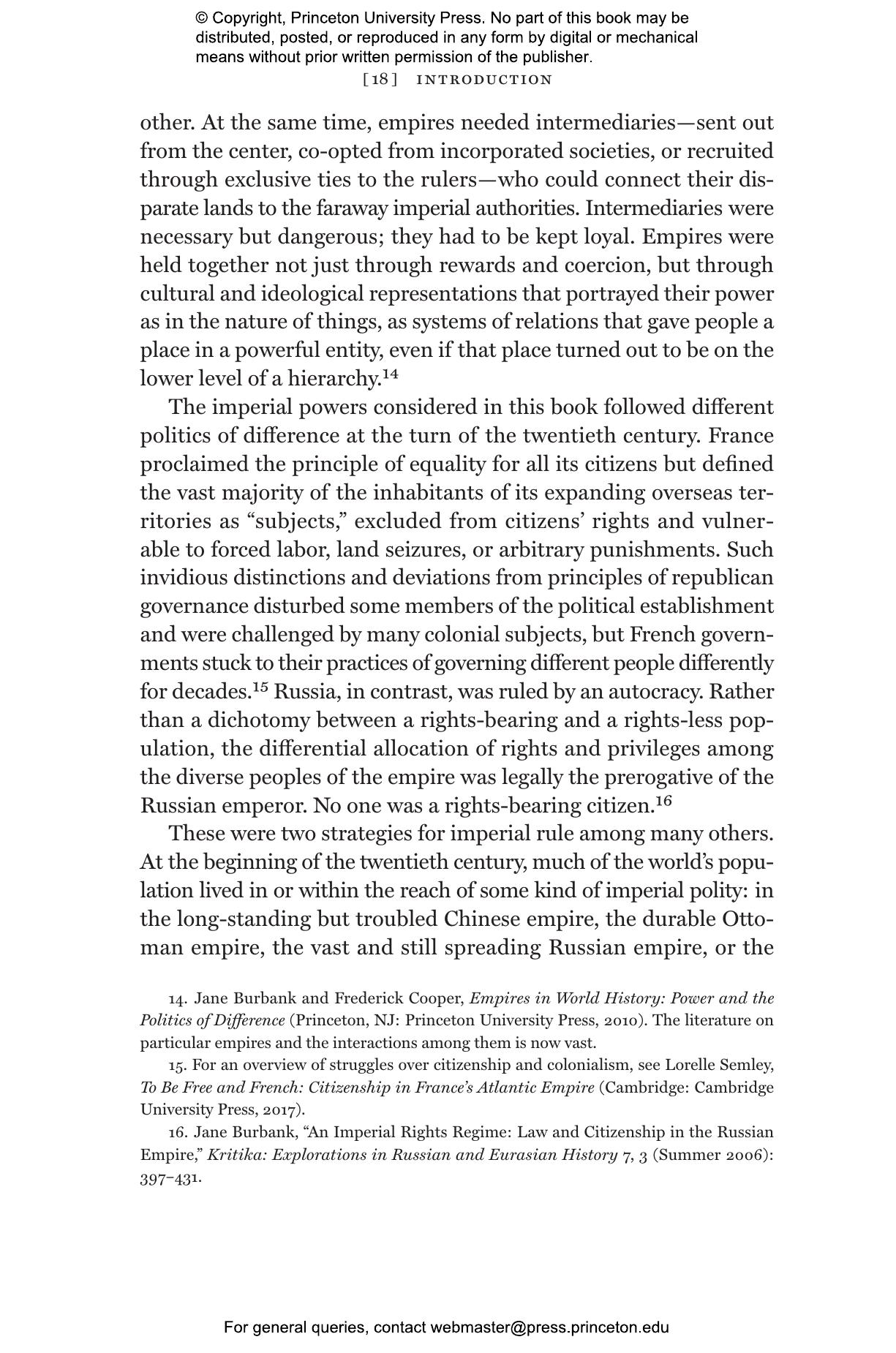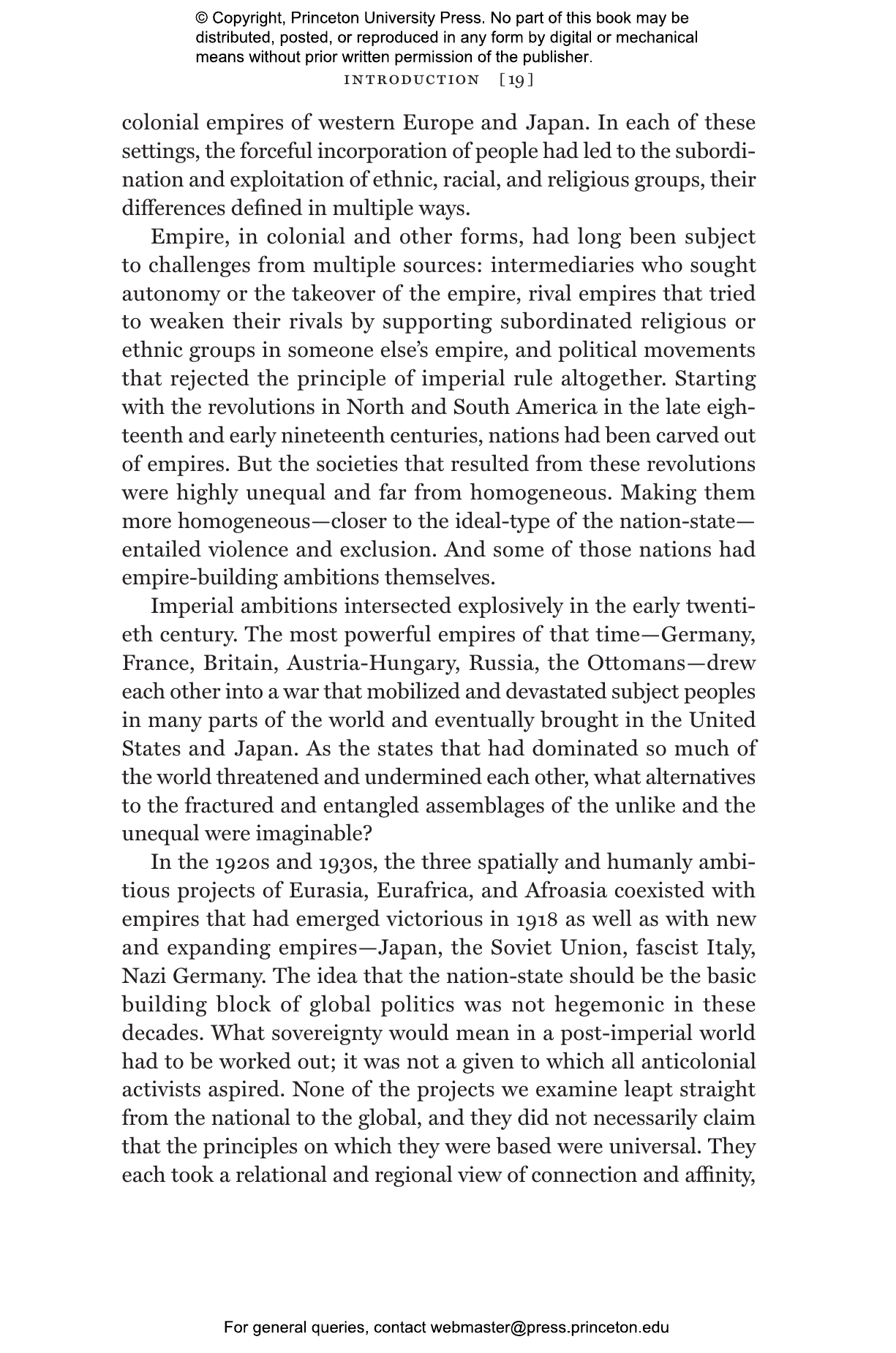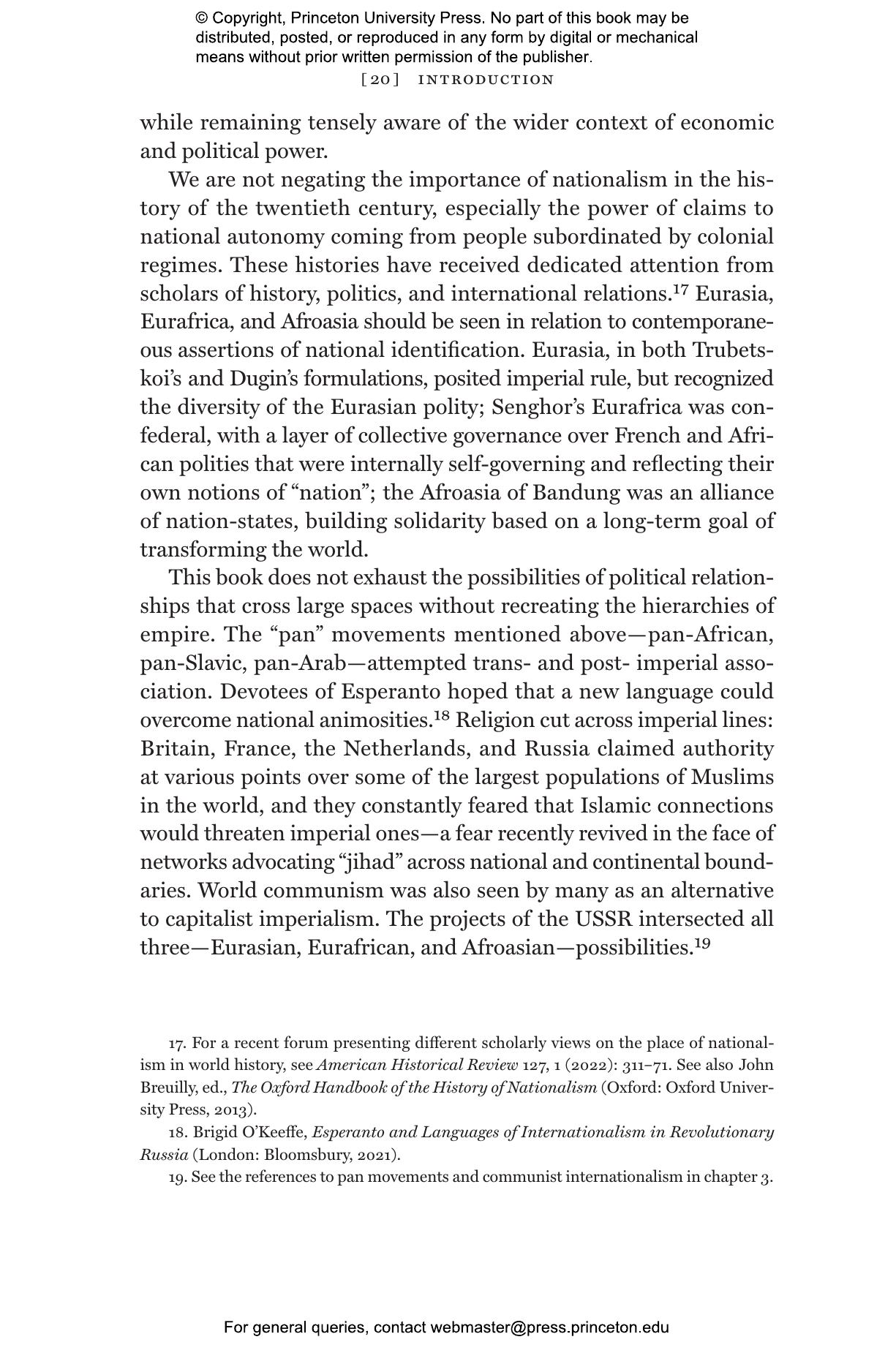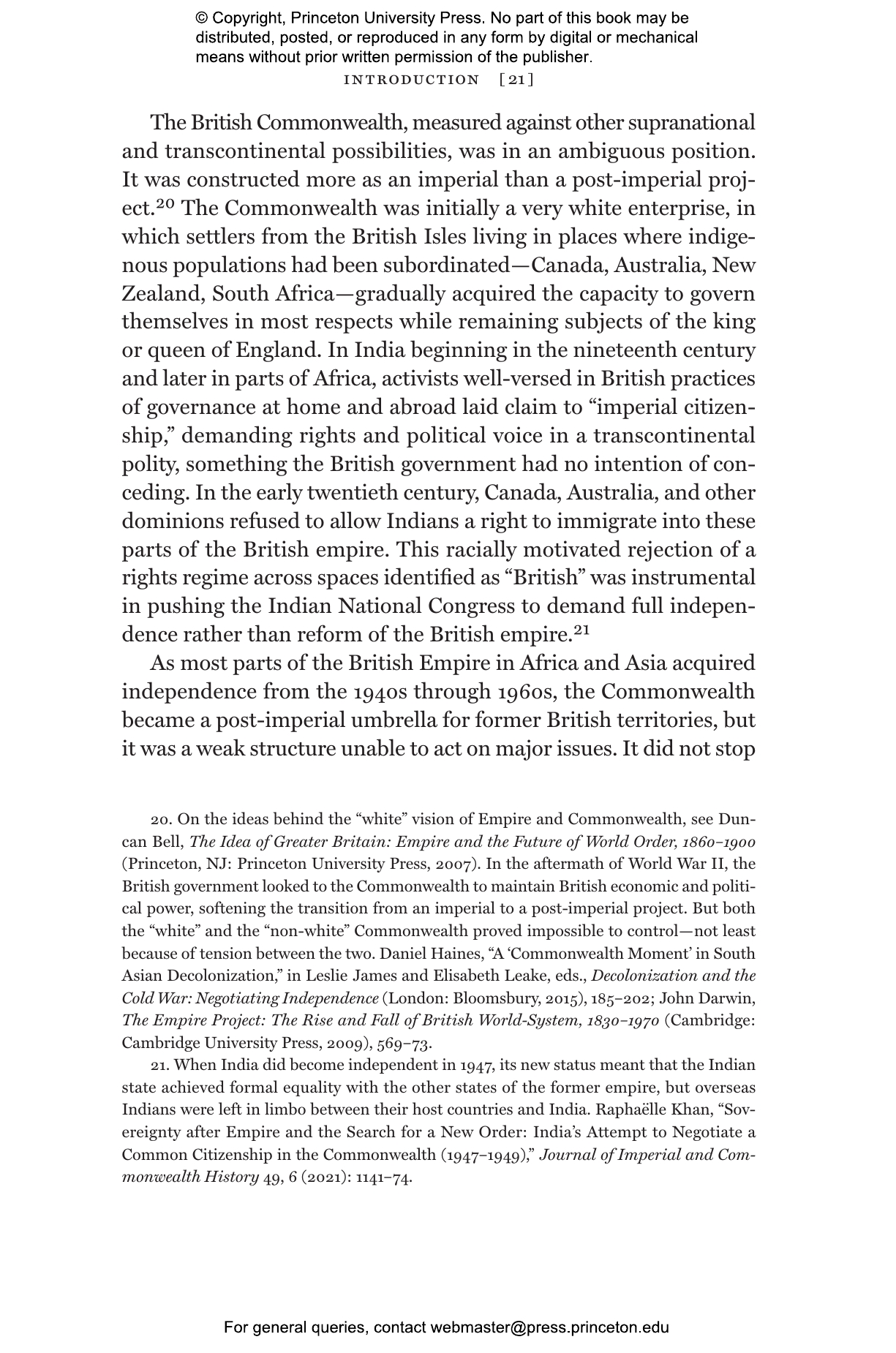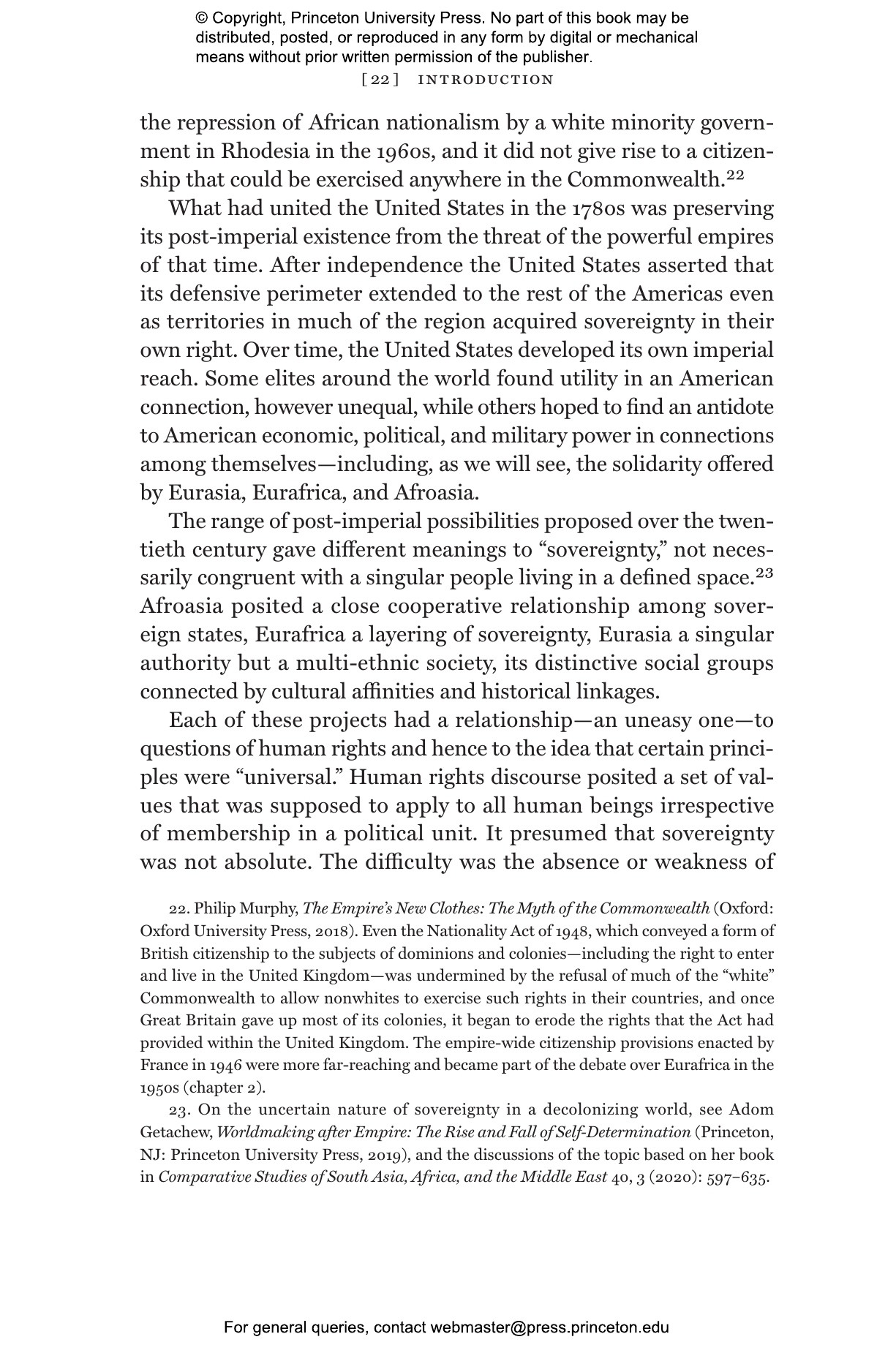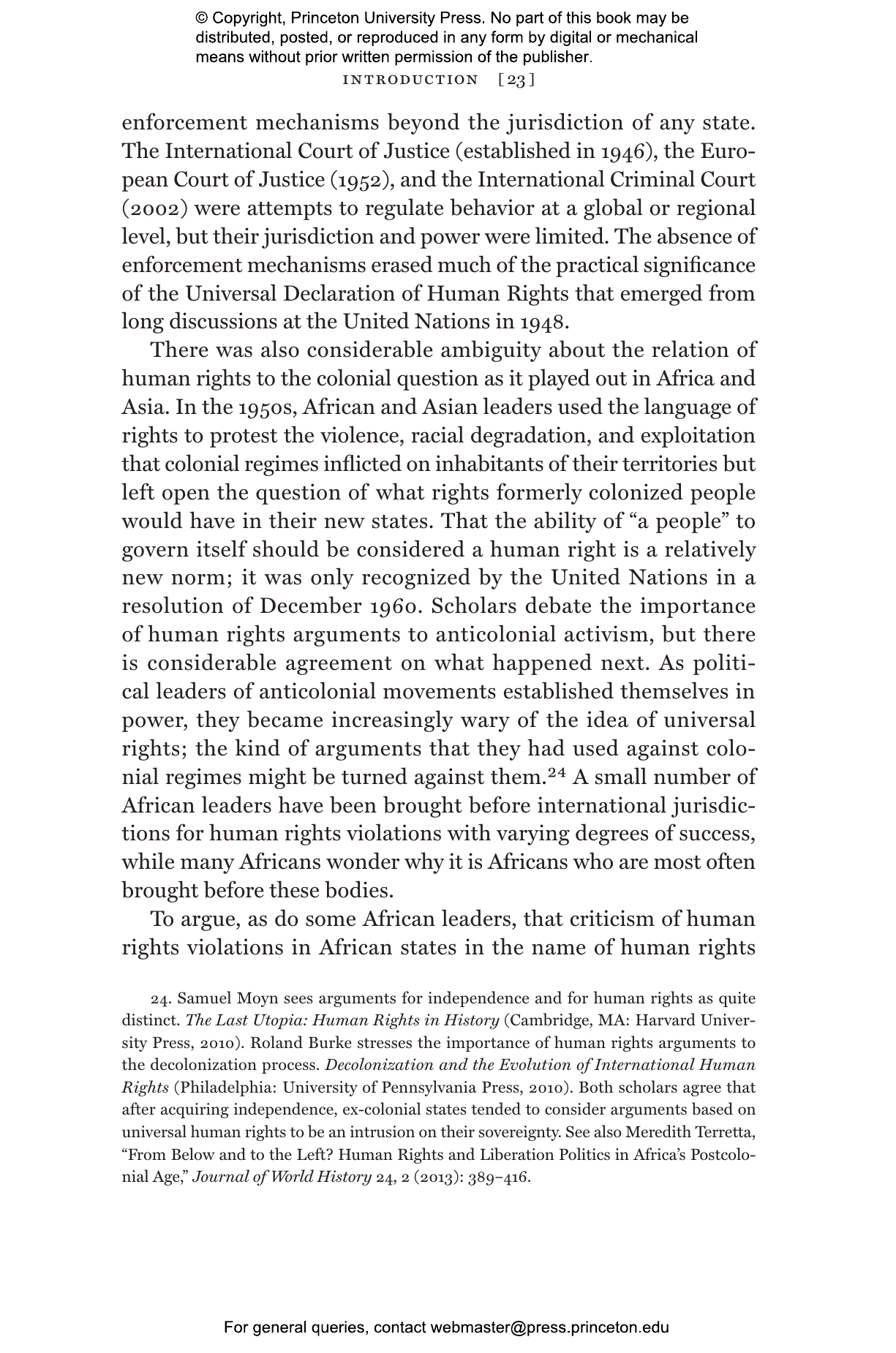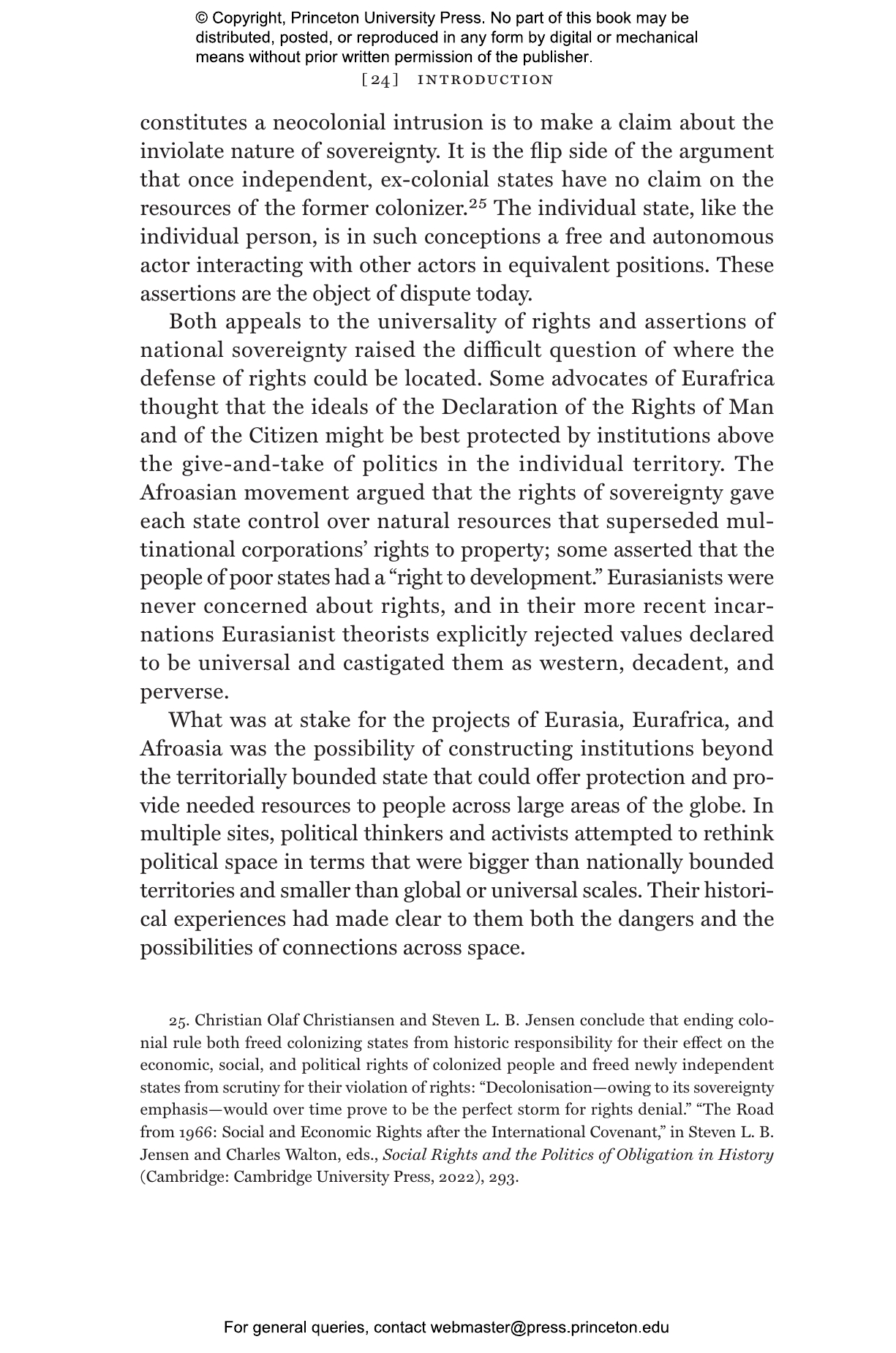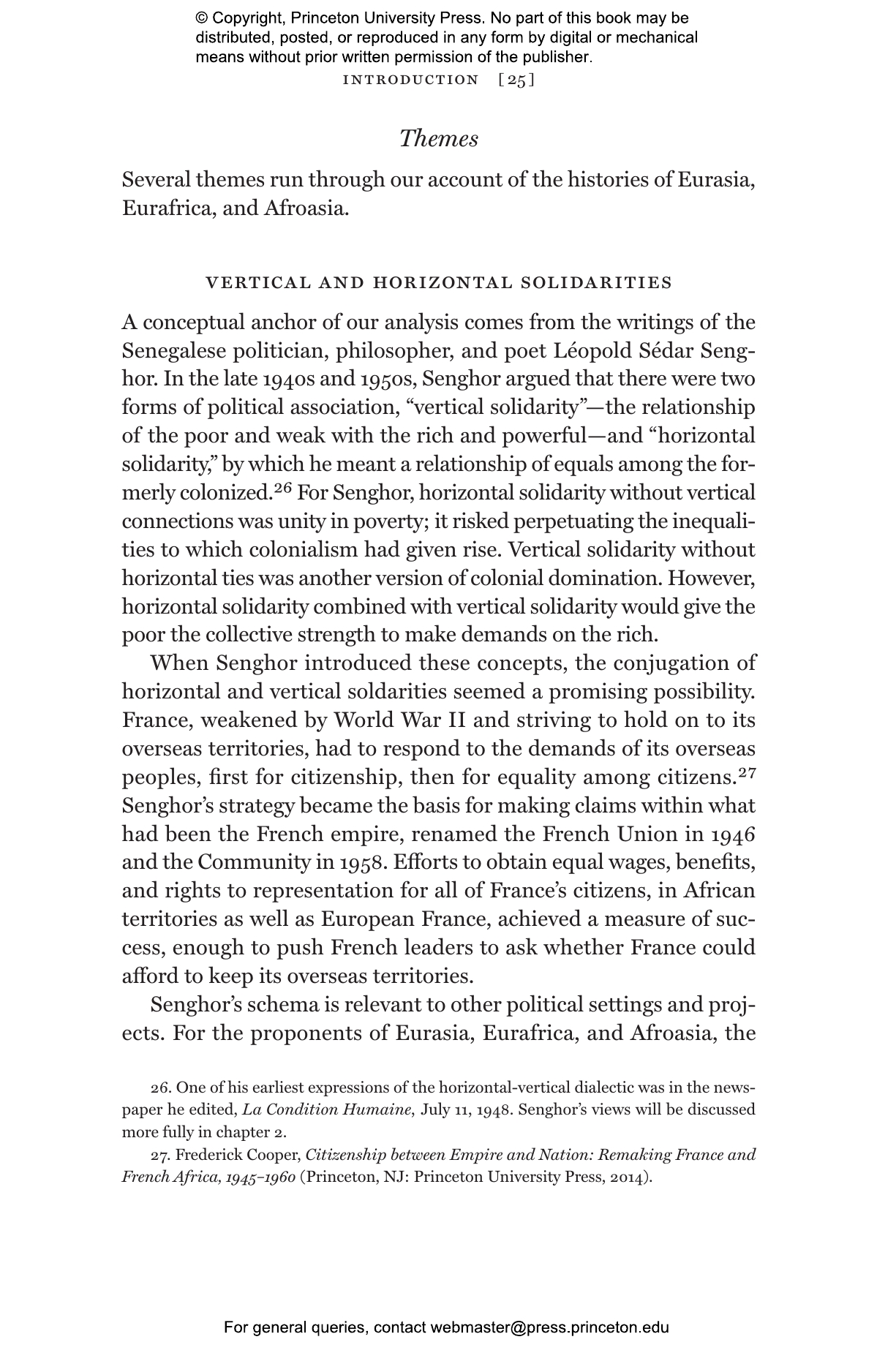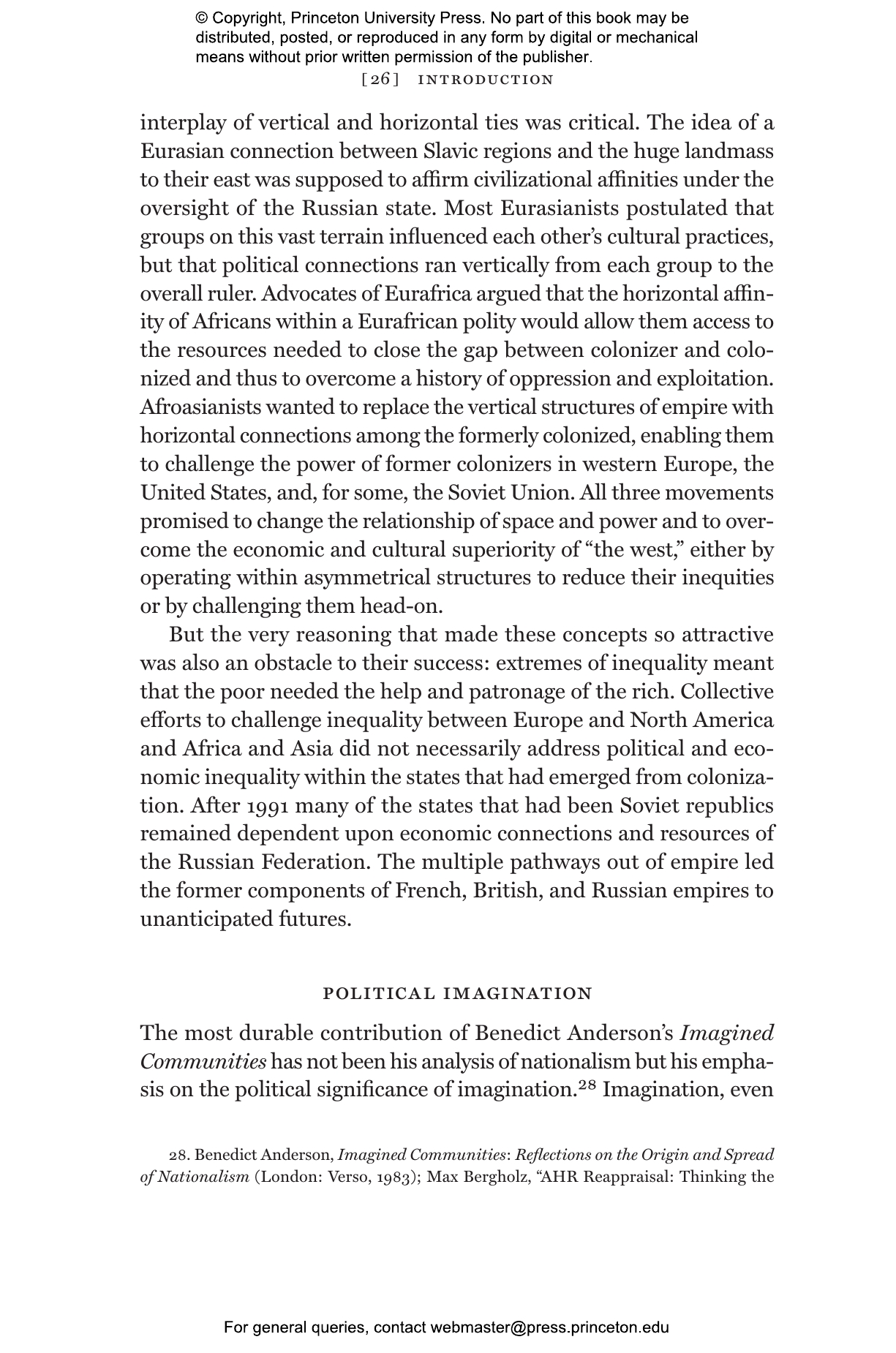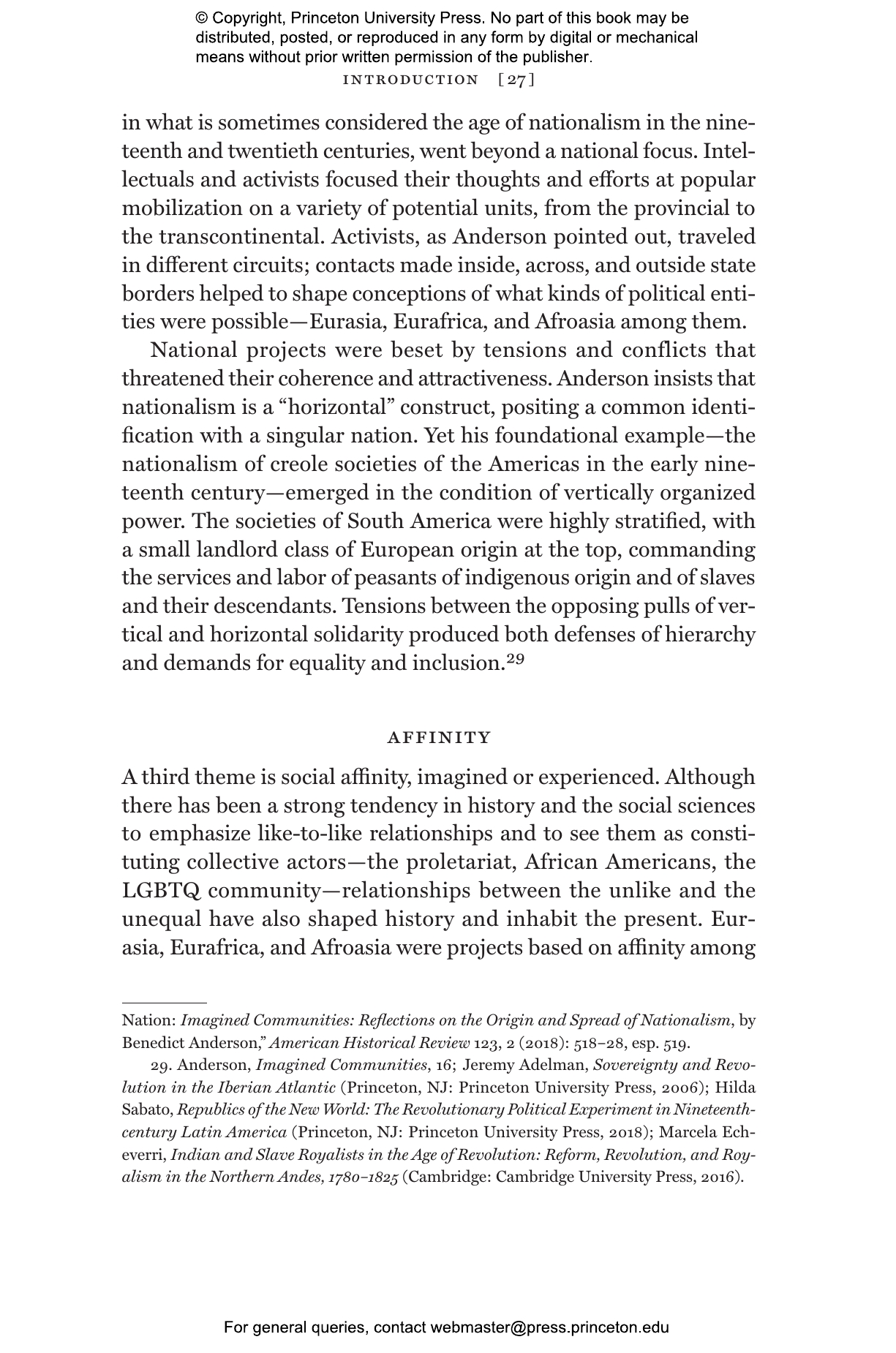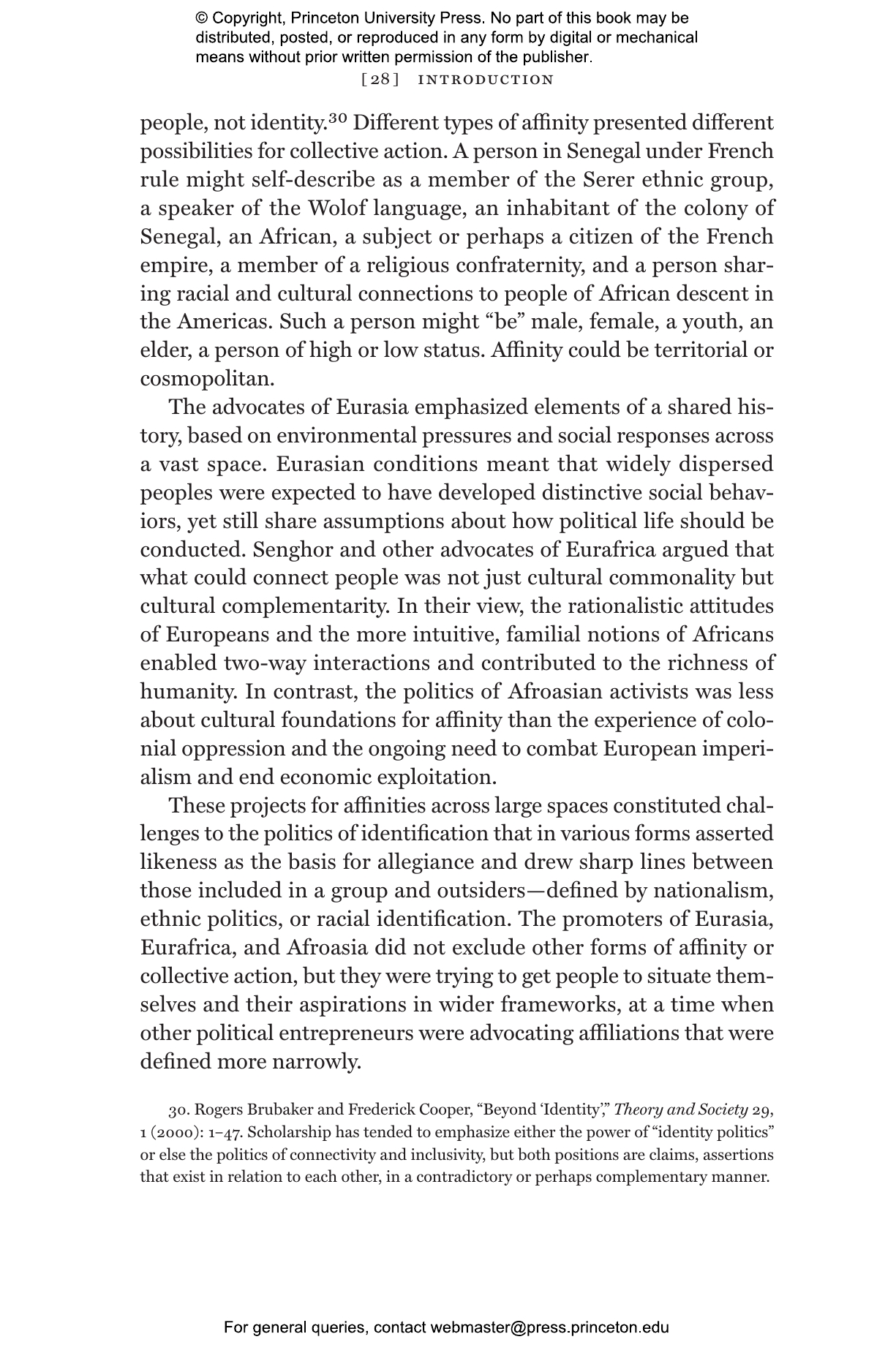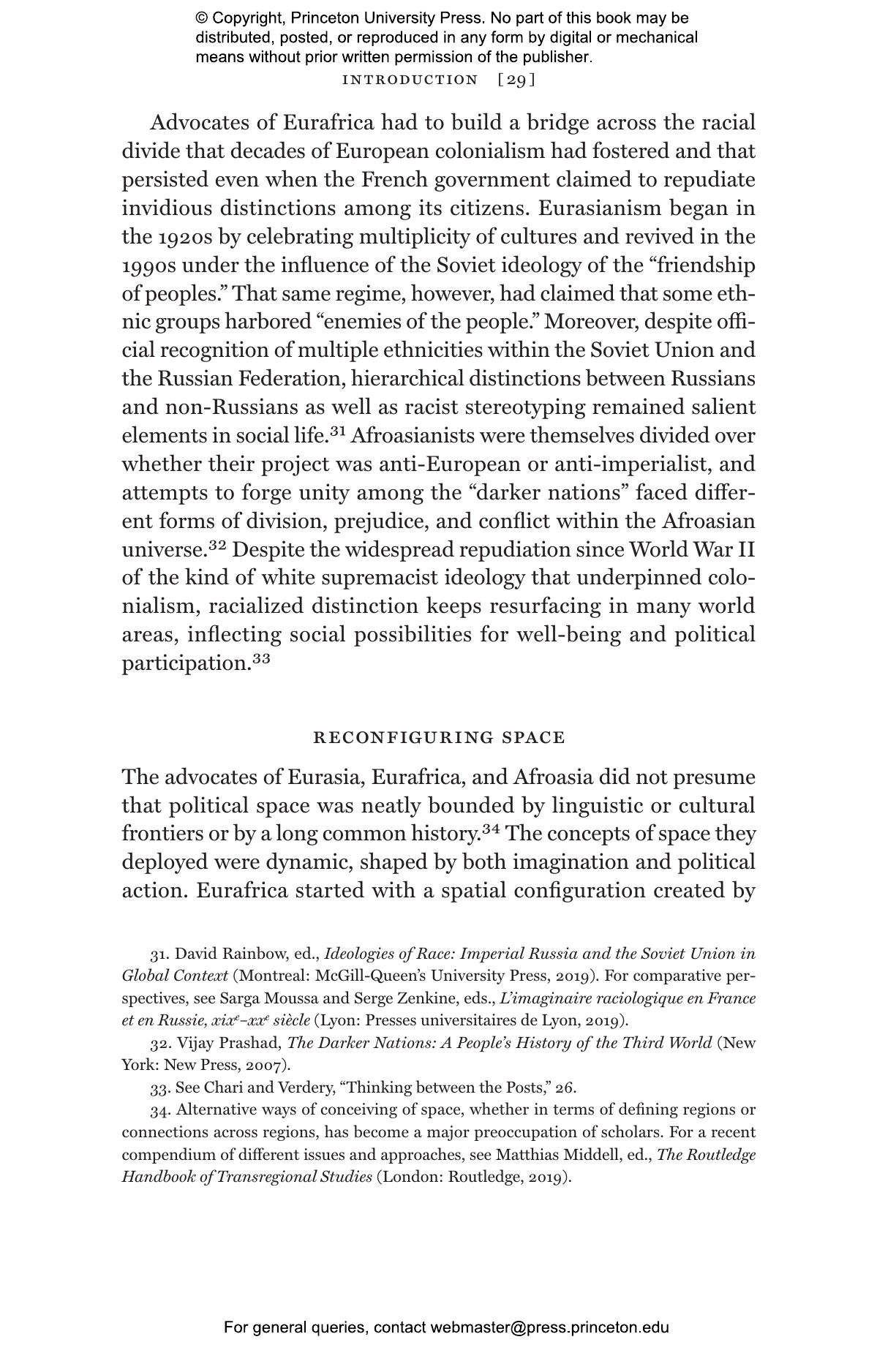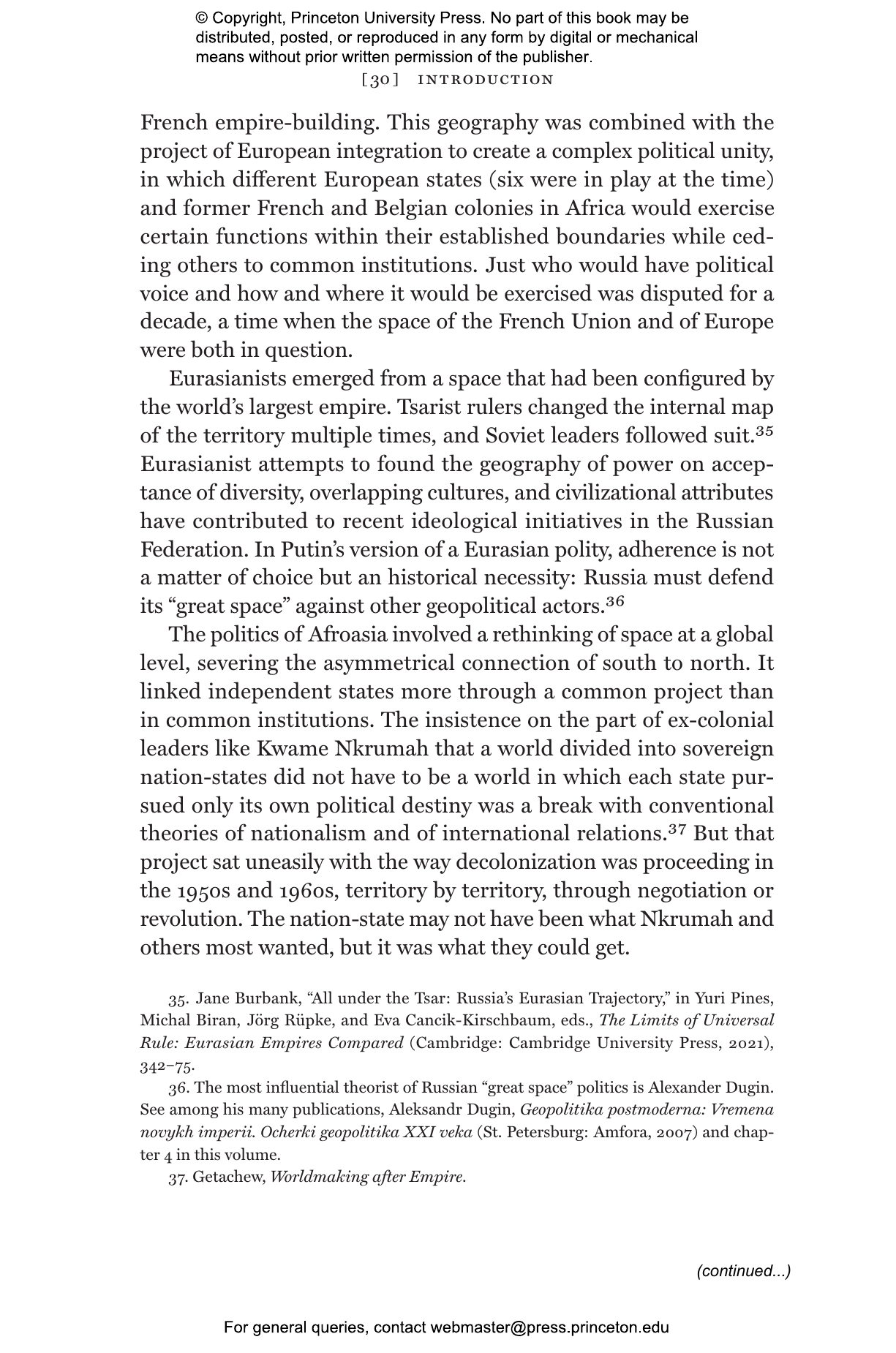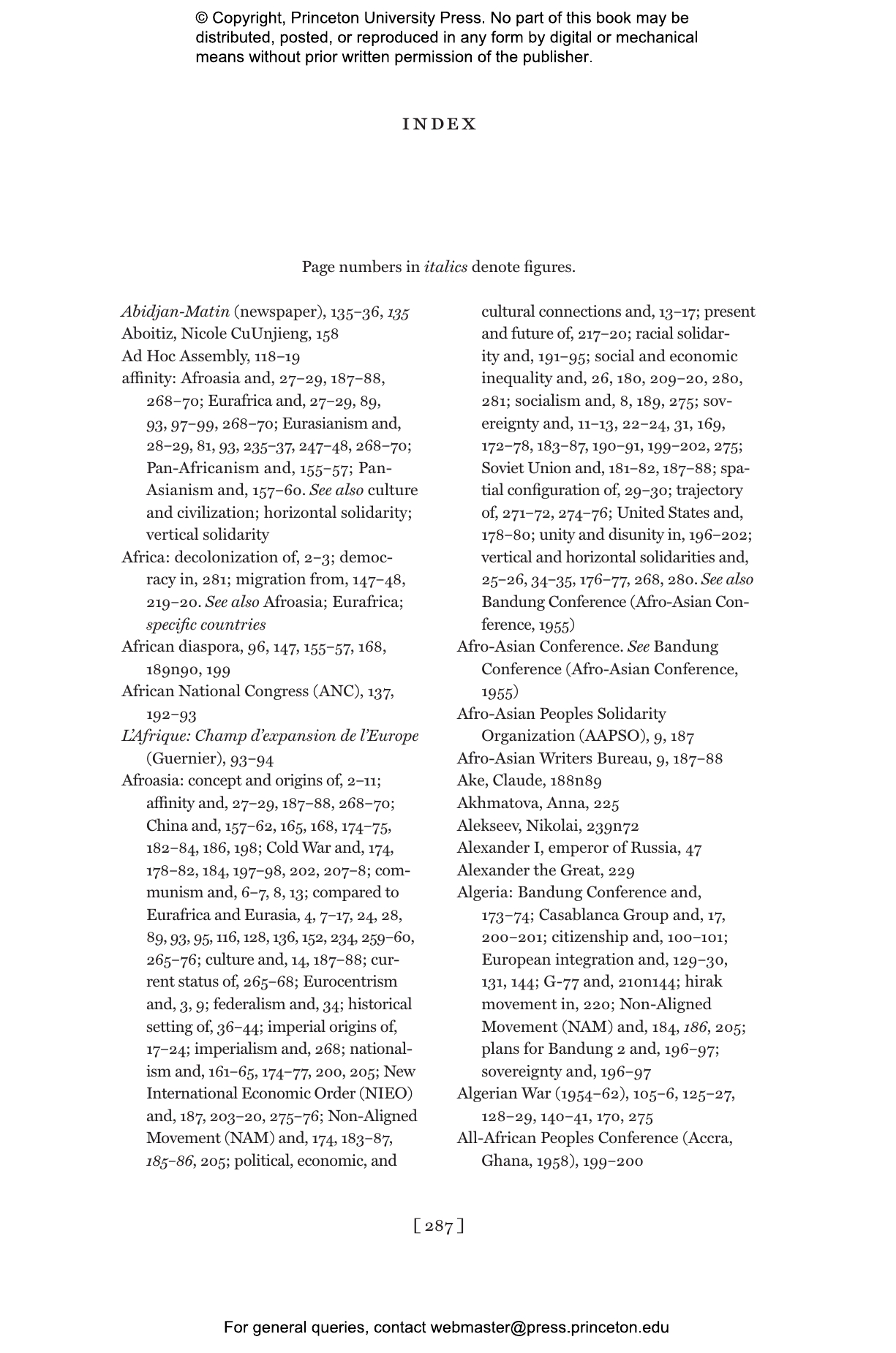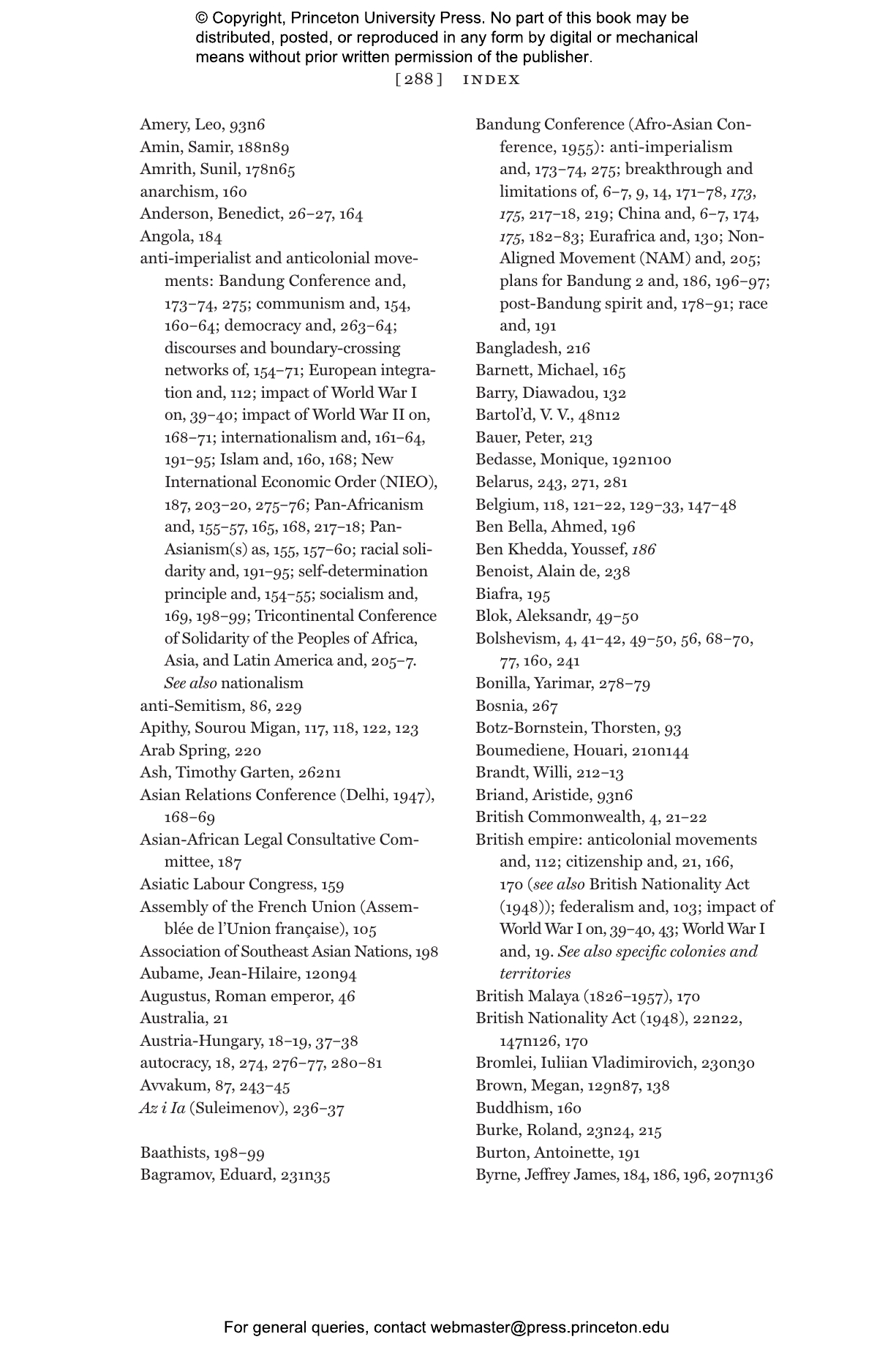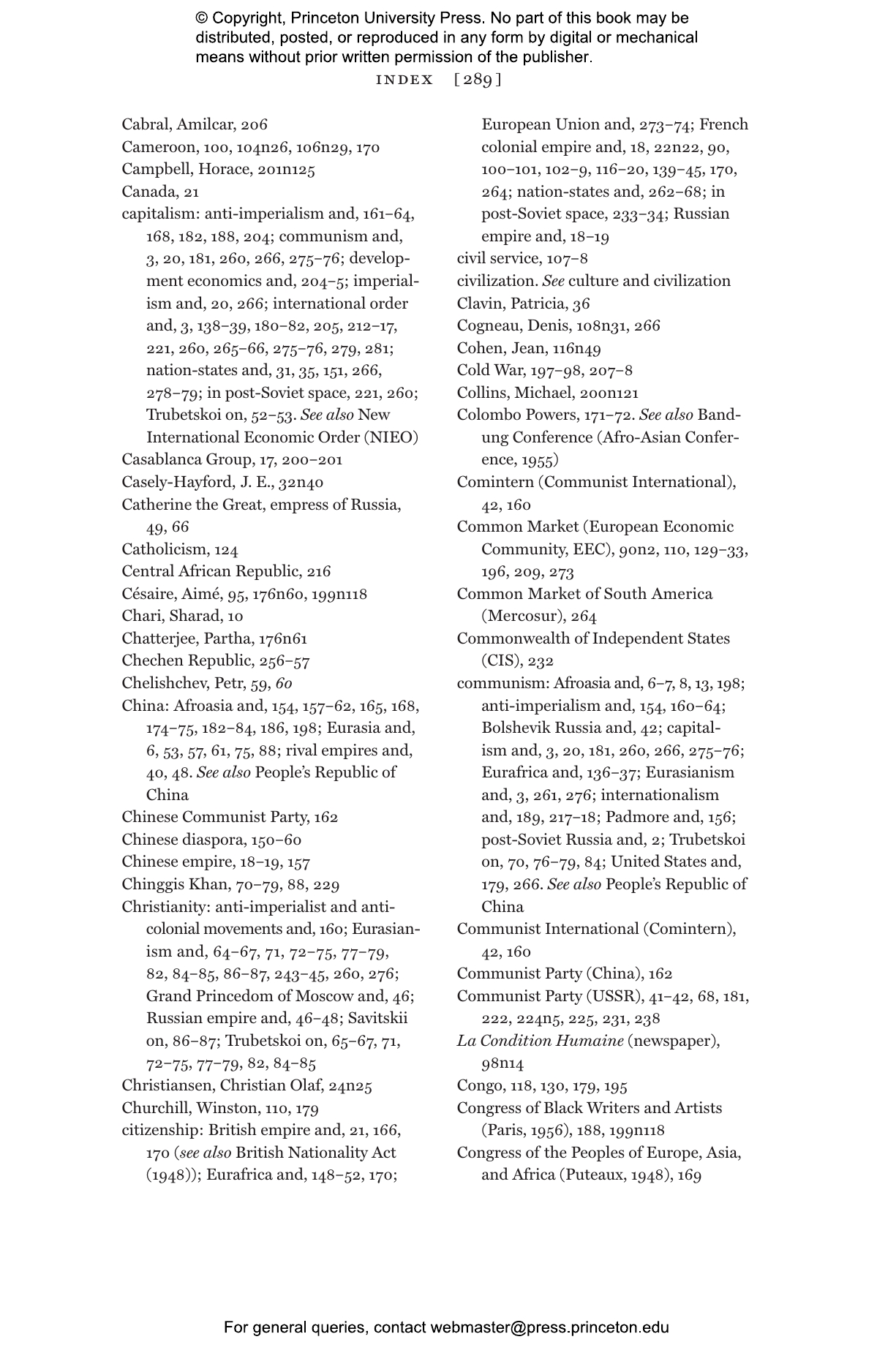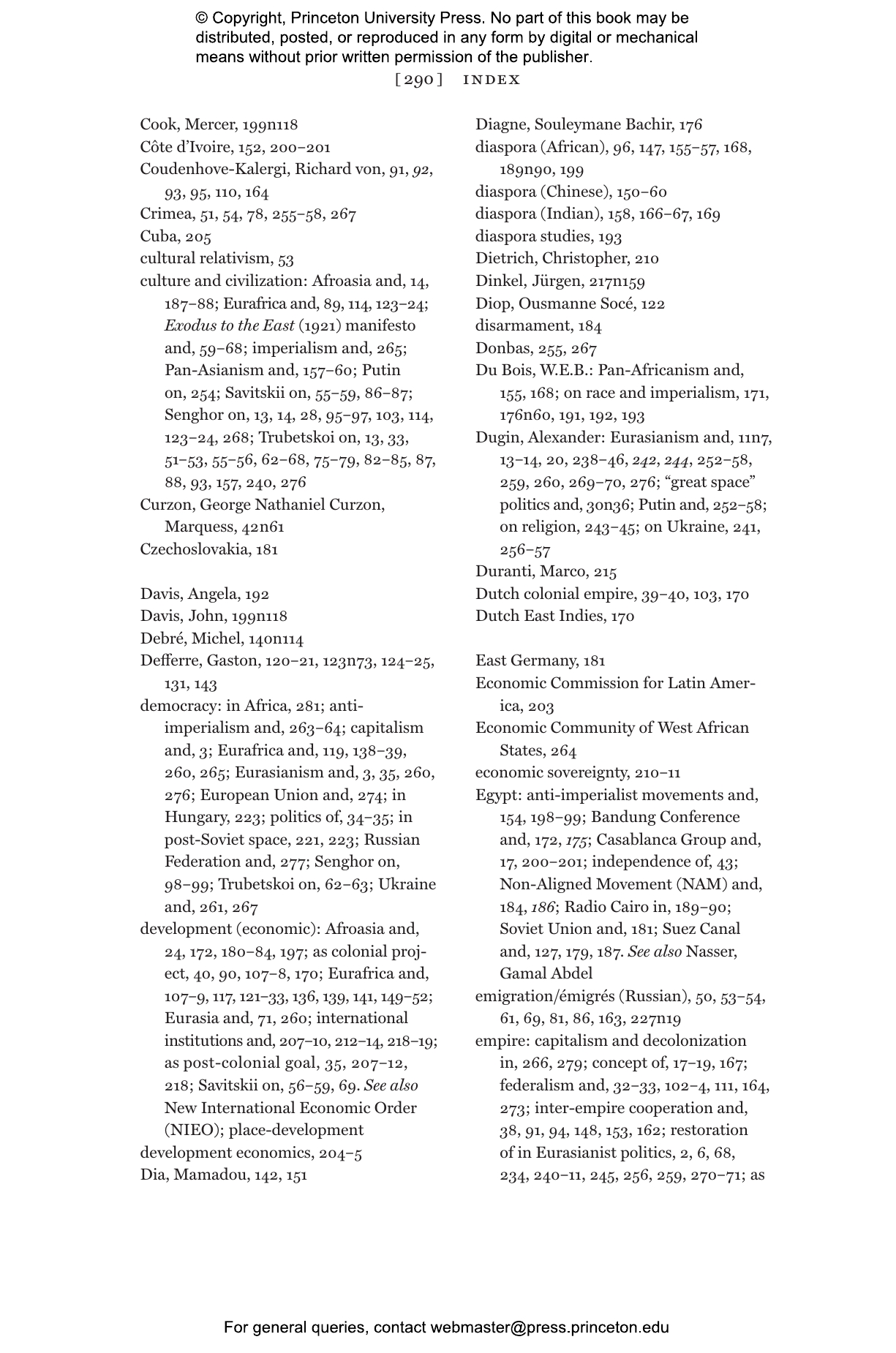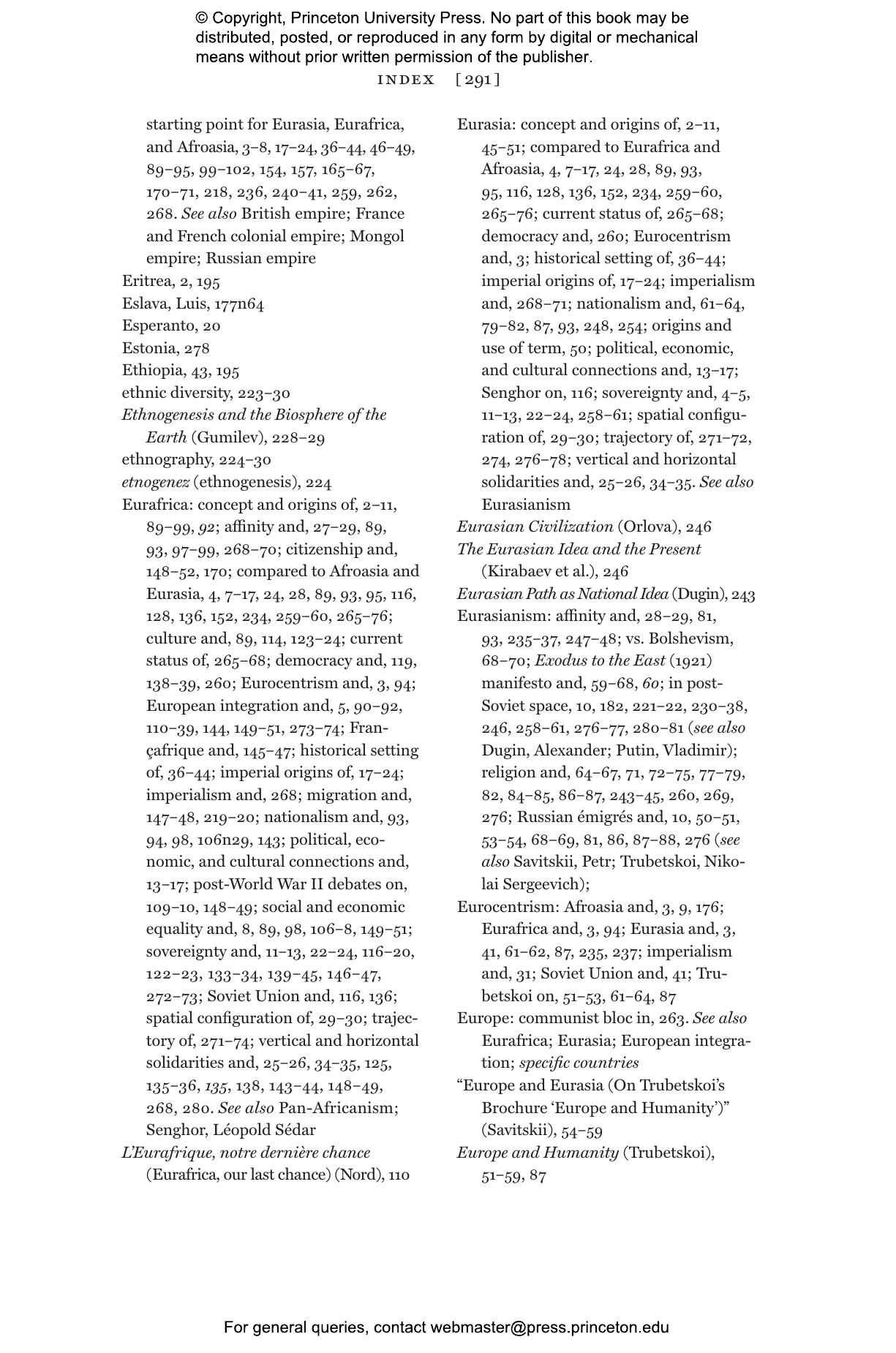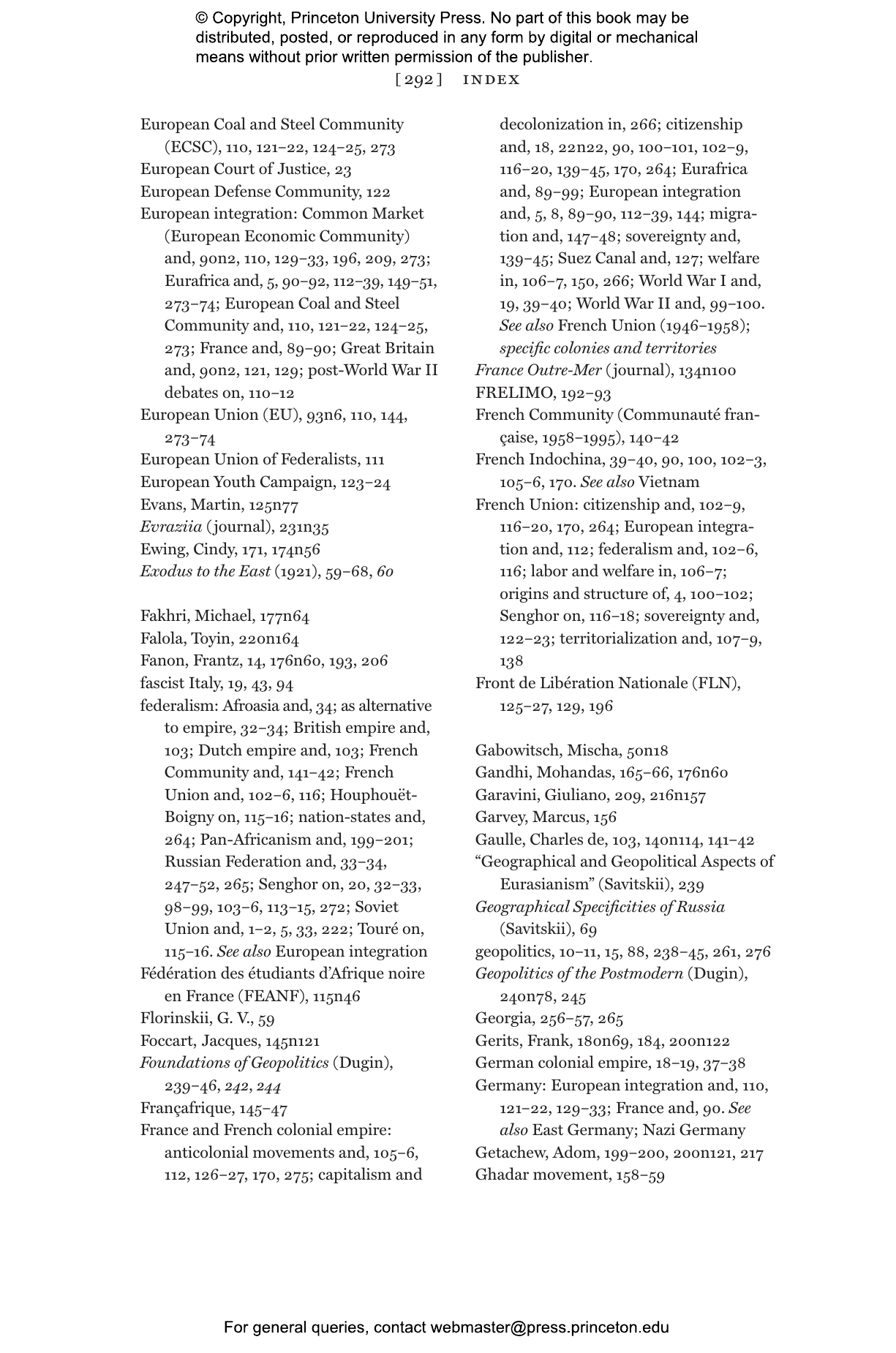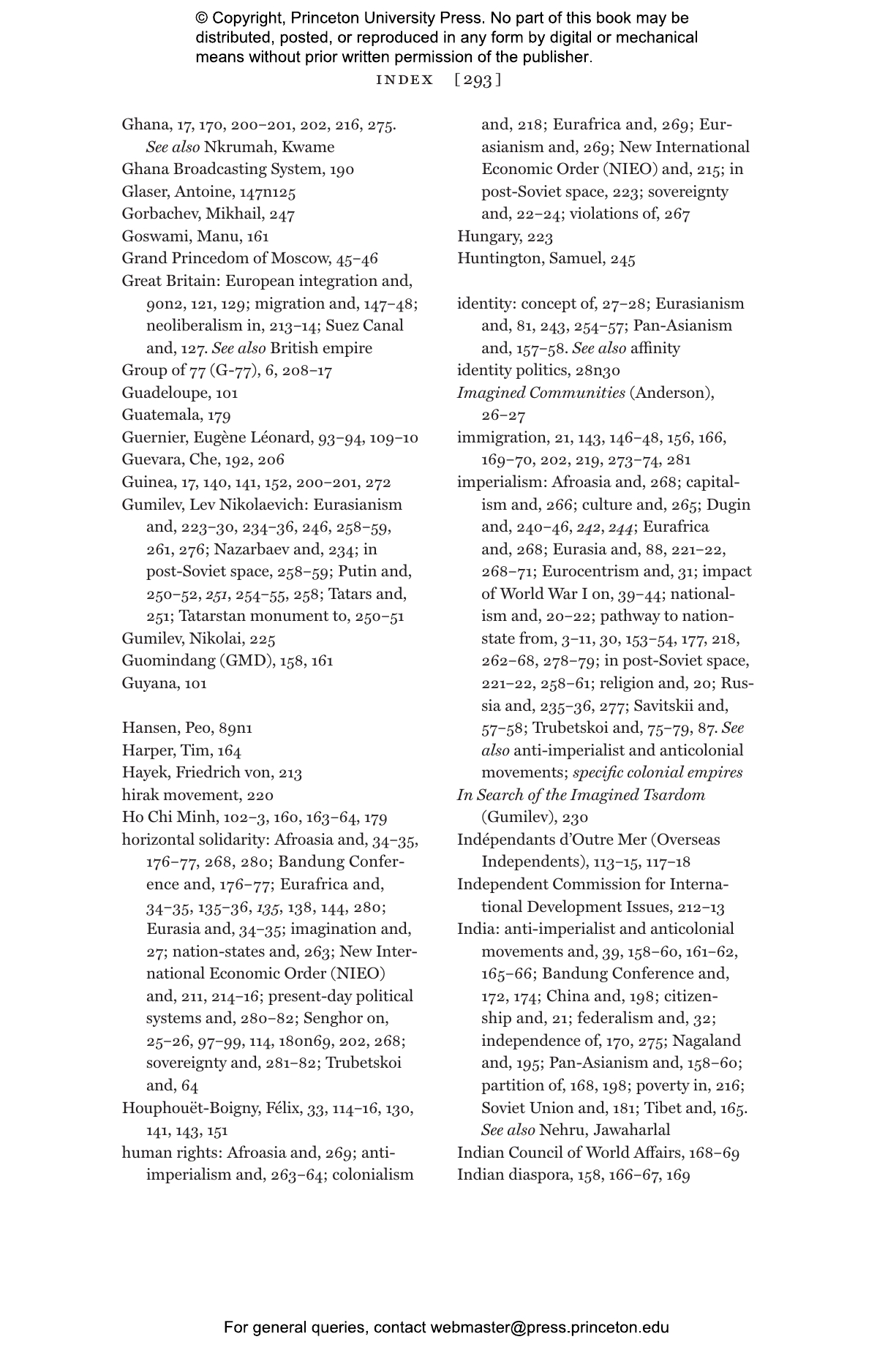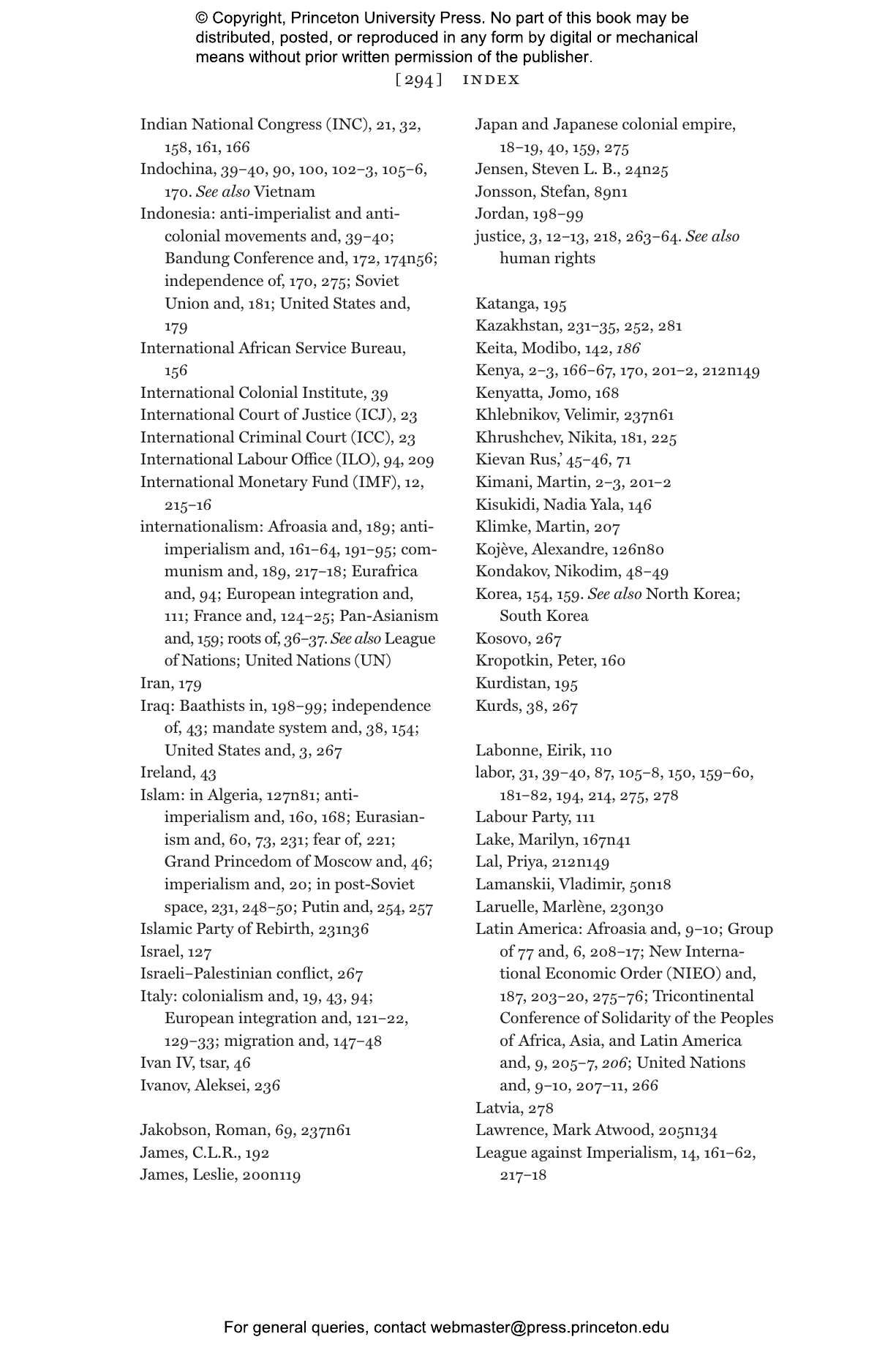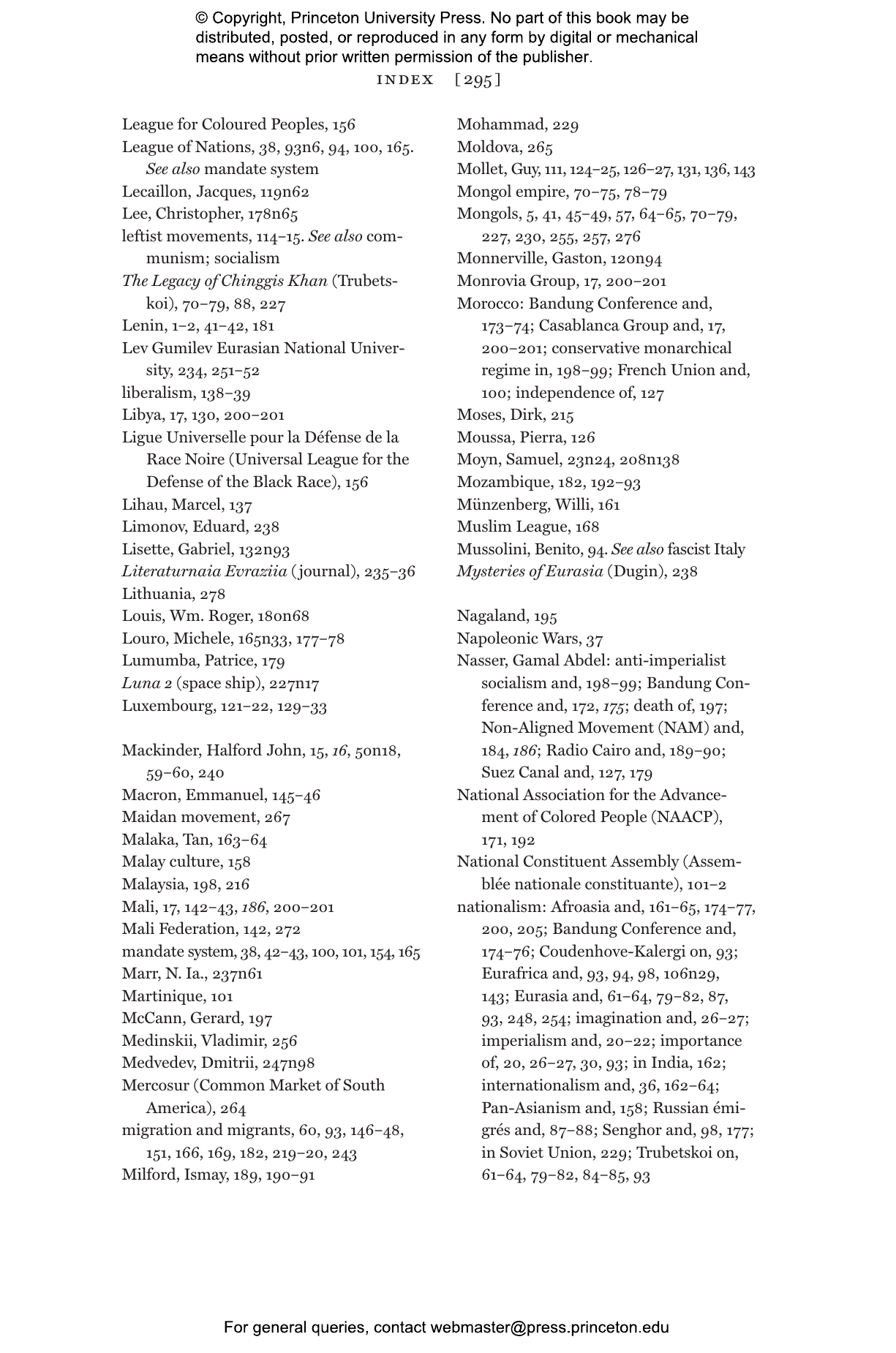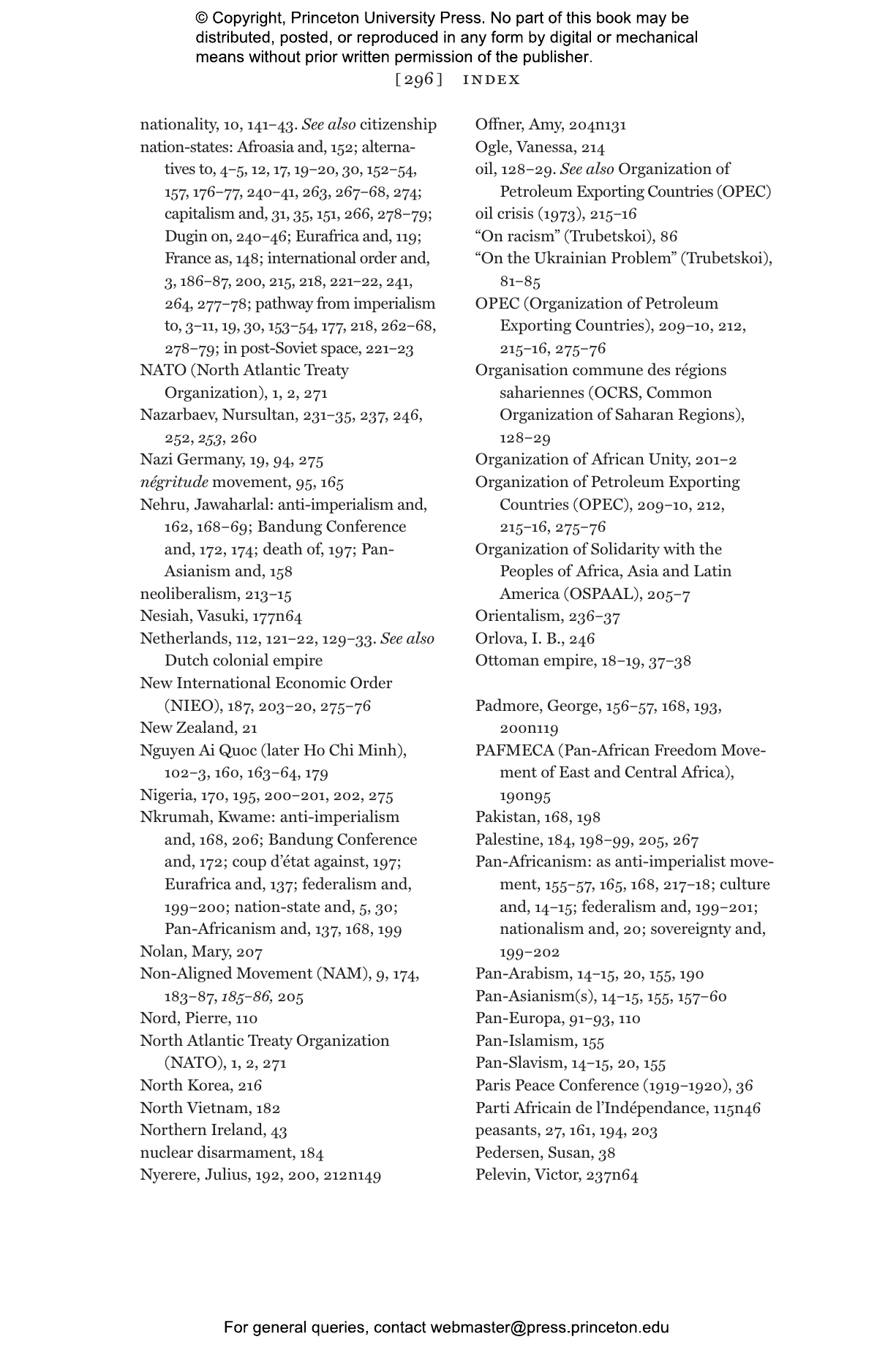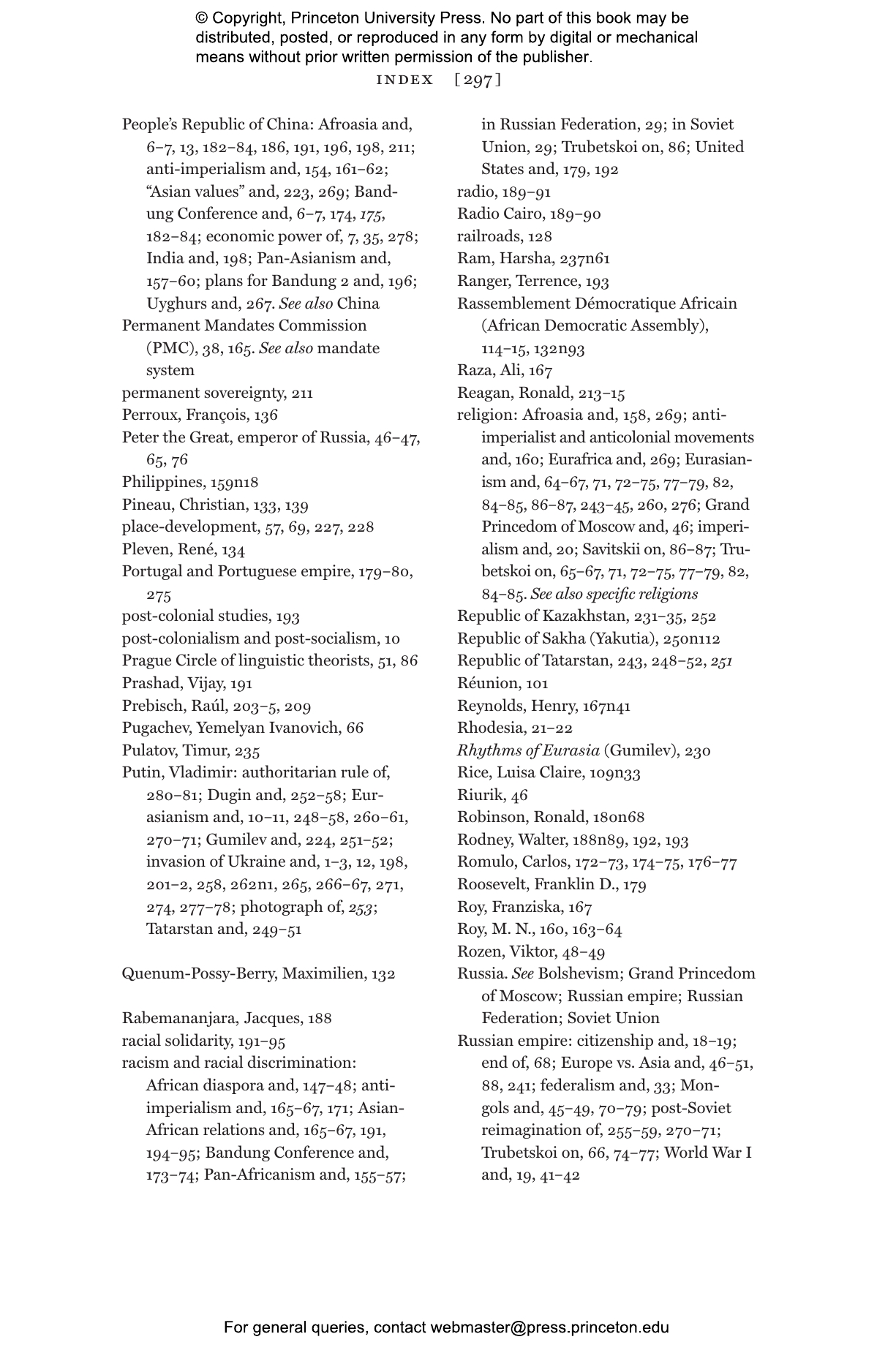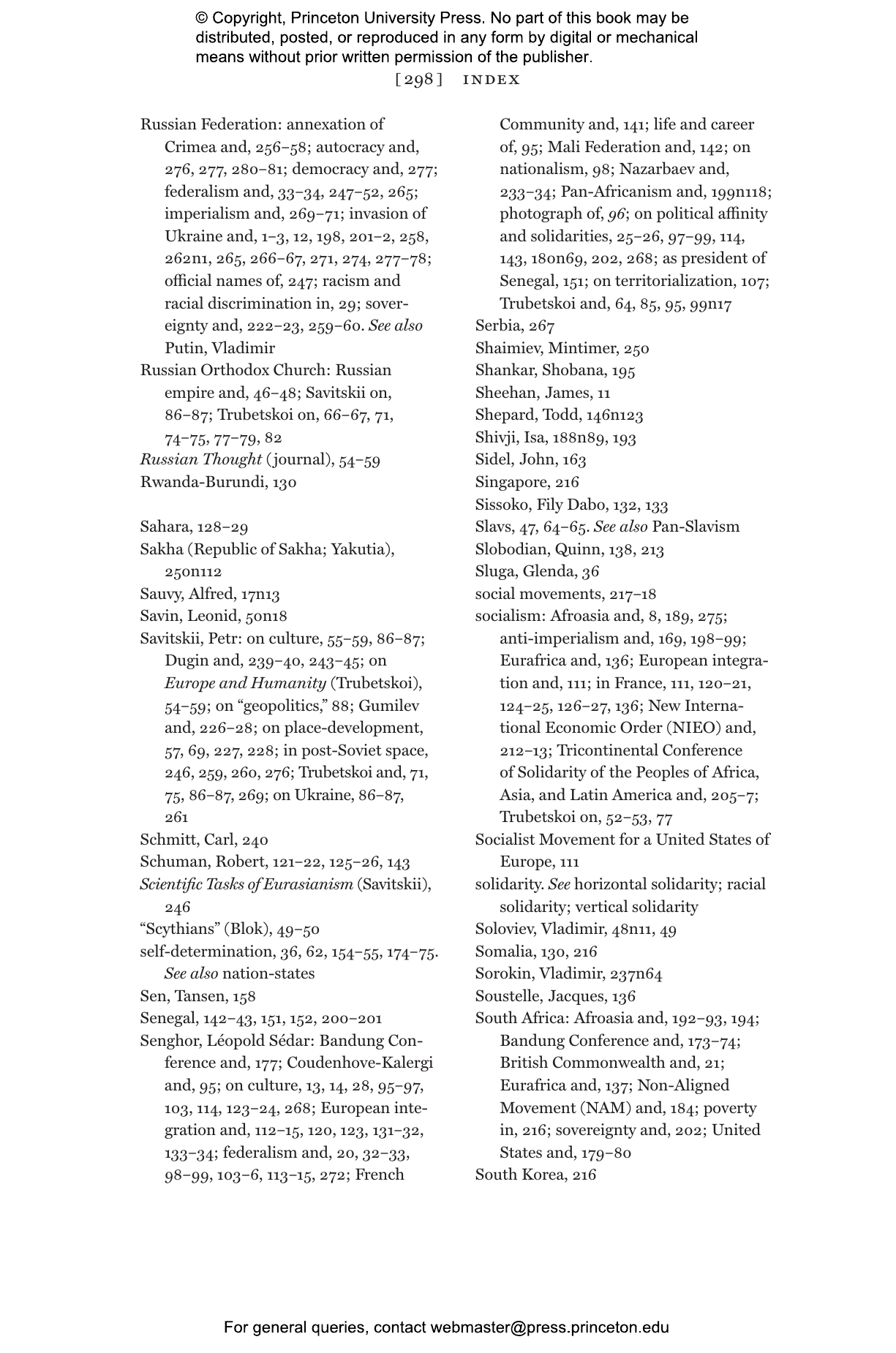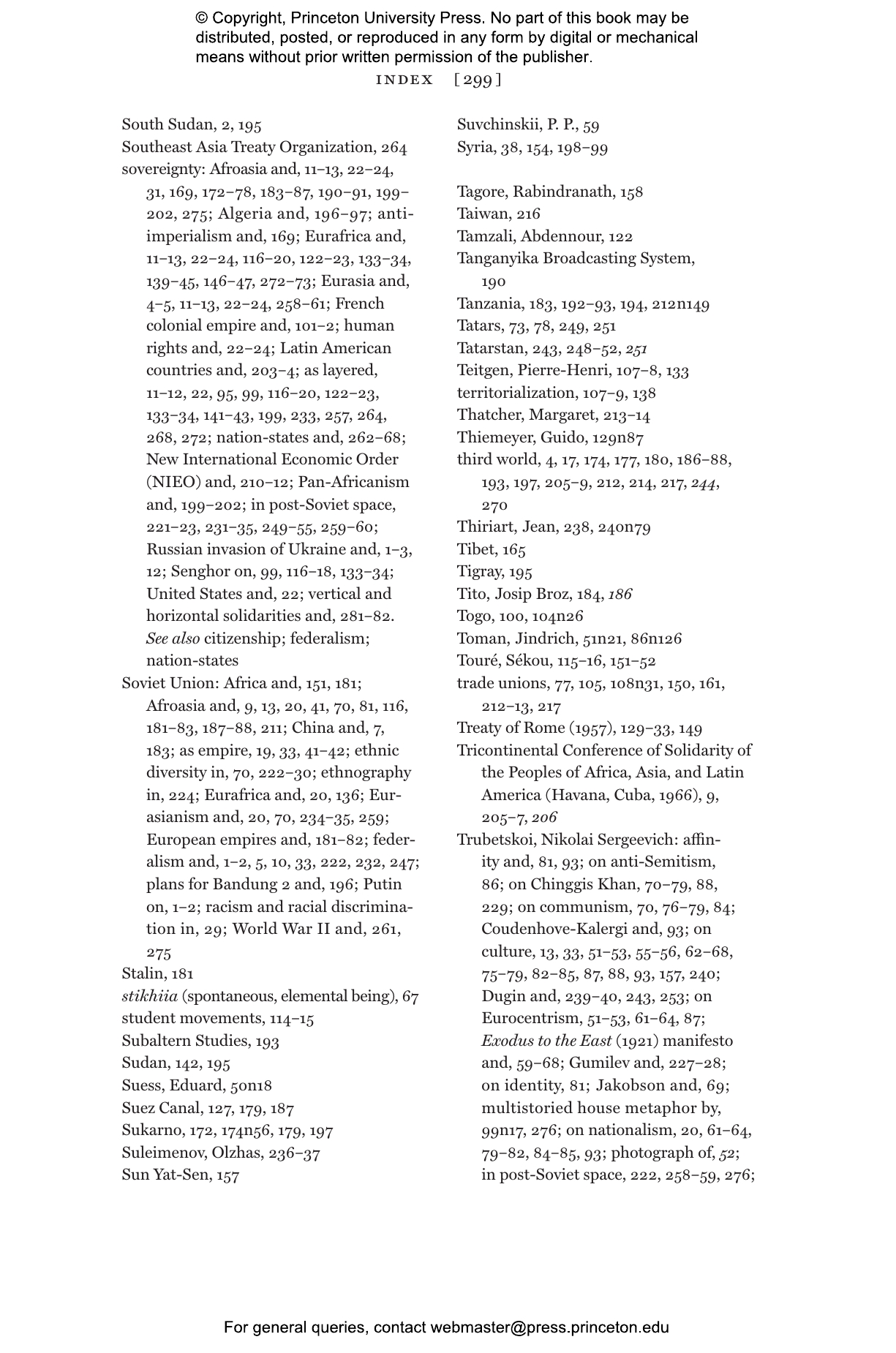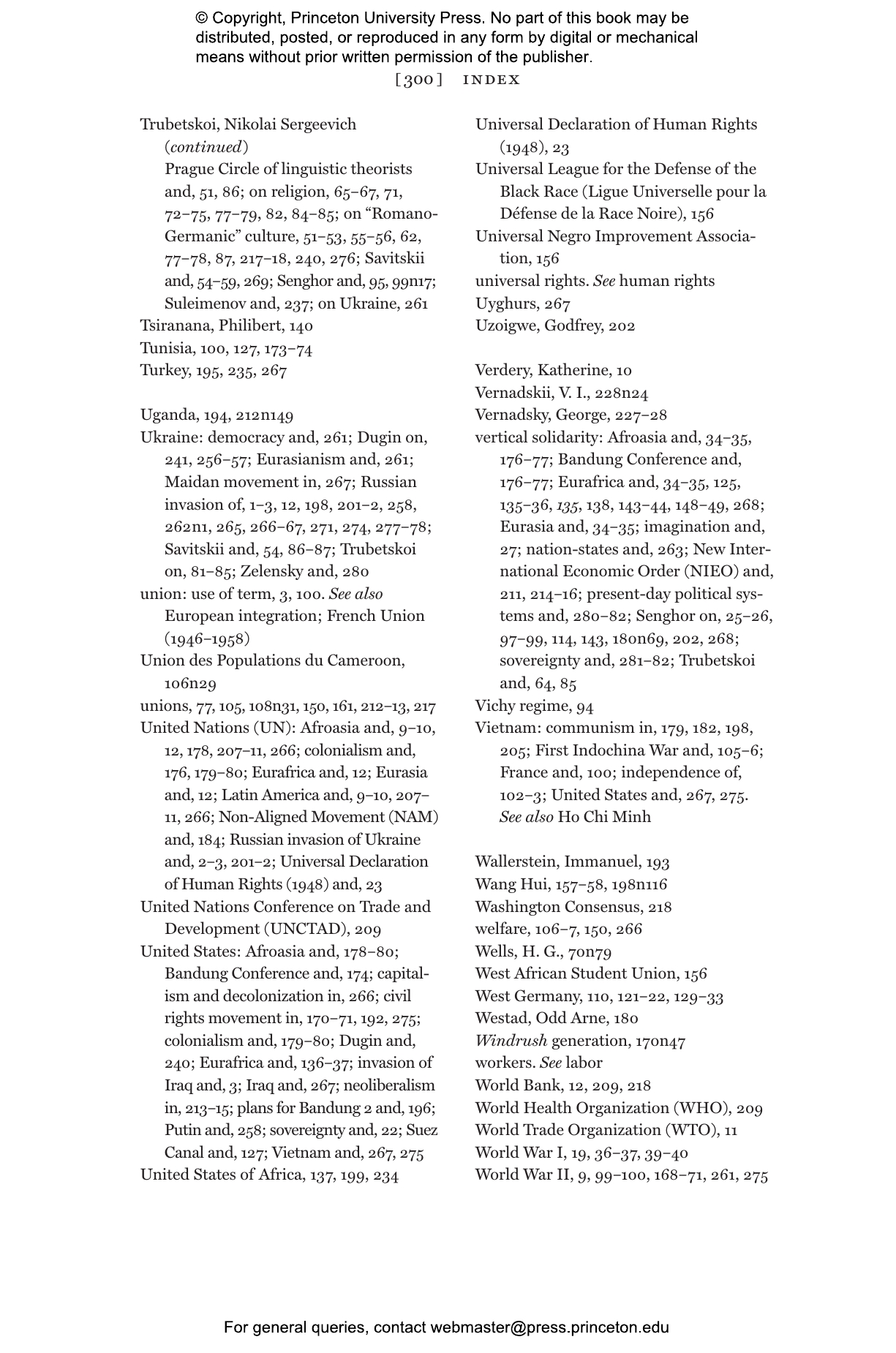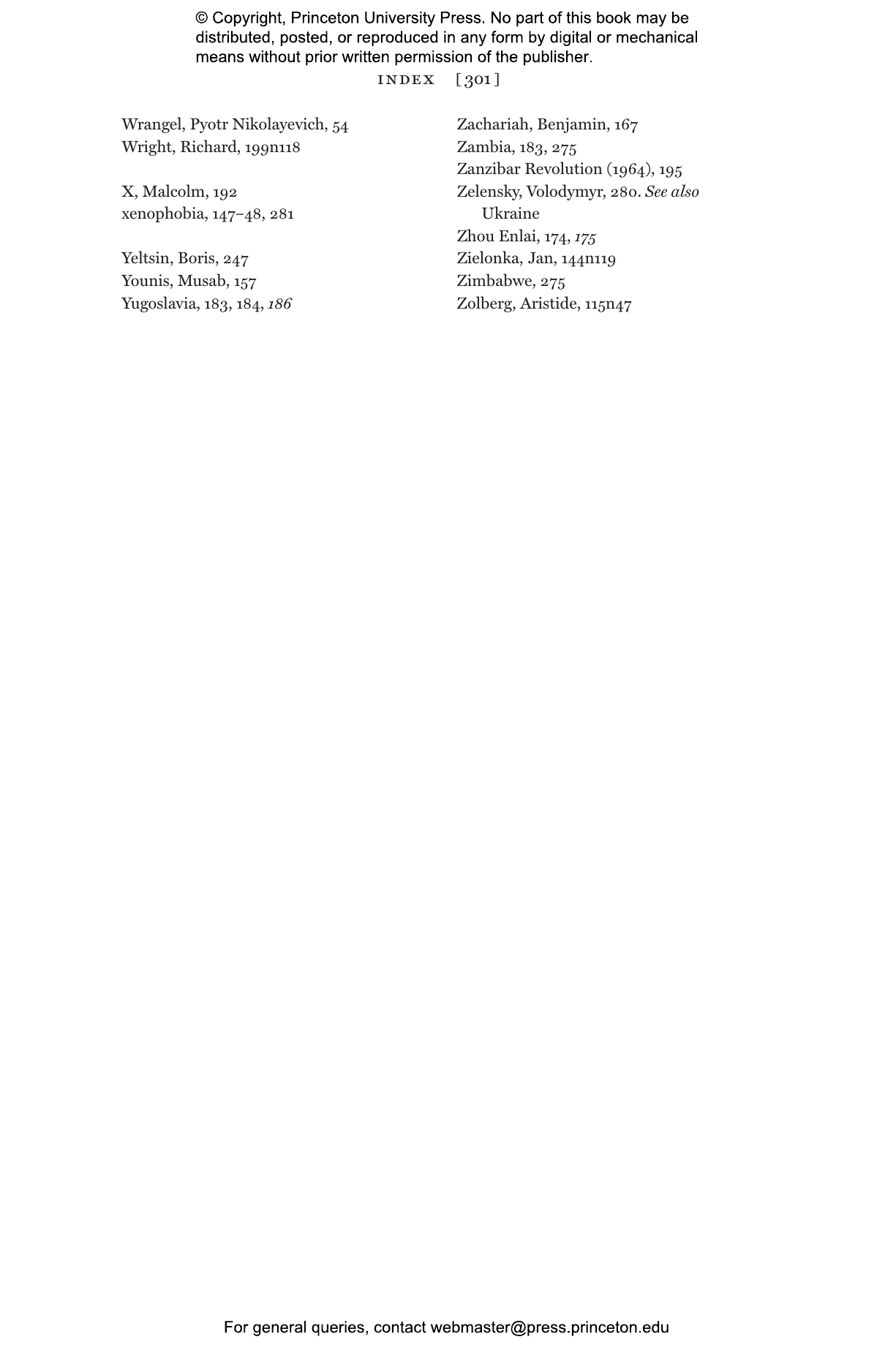After the dissolution of empires, was the nation-state the only way to unite people politically, culturally, and economically? In Post-Imperial Possibilities, historians Jane Burbank and Frederick Cooper examine three large-scale, transcontinental projects aimed at bringing together peoples of different regions to mitigate imperial legacies of inequality. Eurasia, Eurafrica, and Afroasia—in theory if not in practice—offered alternative routes out of empire.
The theory of Eurasianism was developed after the collapse of imperial Russia by exiled intellectuals alienated by both Western imperialism and communism. Eurafrica began as a design for collaborative European exploitation of Africa but was transformed in the 1940s and 1950s into a project to include France’s African territories in plans for European integration. The Afroasian movement wanted to replace the vertical relationship of colonizer and colonized with a horizontal relationship among former colonial territories that could challenge both the communist and capitalist worlds.
Both Eurafrica and Afroasia floundered, victims of old and new vested interests. But Eurasia revived in the 1990s, when Russian intellectuals turned the theory’s attack on Western hegemony into a recipe for the restoration of Russian imperial power. While both the system of purportedly sovereign states and the concentrated might of large economic and political institutions continue to frustrate projects to overcome inequities in welfare and power, Burbank and Cooper’s study of political imagination explores wide-ranging concepts of social affiliation and obligation that emerged after empire and the reasons for their unlike destinies.
Jane Burbank is professor emerita of history and Russian and Slavic studies at New York University. She is the author of Intelligentsia and Revolution and Russian Peasants Go to Court. Frederick Cooper is professor emeritus of history at New York University. He is the author of Citizenship between Empire and Nation, Africa since 1940, and Citizenship, Inequality, and Difference. Burbank and Cooper are coauthors of Empires in World History (Princeton).
"With so much contemporary focus on the global South, [Post-imperial Possibilities] is a welcome reminder that ideals of statehood exported from or heavily influenced by Europeans tell only part of the story of political evolution in Asia and Africa."—Samir Puri, International Affairs
"Only rarely does a book come along that challenges us to consider whether the current international order, composed of sovereign nation-states, should be taken for granted. . . . [Post-Imperial Possibilities] presents a compelling central argument."—Natalia Telepneva, H-Net Reviews
“In a splendid sequel to their book on empires, Jane Burbank and Frederick Cooper investigate bold alternatives in Eurasia and Africa to the nation-state form and post-imperial domination by the West. Yet these ambitious schemes foundered on the existing inequities of power and wealth between the former colonizers and the emancipated colonies and the ambitions of elites within existing political units. In this impressive tour d’horizon, Burbank and Cooper remind us that the present has been made not only by pragmatic successes but also by deferred dreams.”—Ronald Grigor Suny, author of Stalin: Passage to Revolution
“Building on the continued interest in non-national pathways out of empire, Post-Imperial Possibilities brings to bear a wide-ranging and comparative framework that tracks the overlapping and distinctive anti-imperial imaginaries from the Soviet space to West Africa. This is an important resource for specialists and nonspecialists alike that will shape syllabi and future research agendas.”—Adom Getachew, author of Worldmaking after Empire: The Rise and Fall of Self-Determination
“As historical realities, Eurasia, Eurafrica, and Afroasia all ended in fiasco, but the analysis in this book proves extremely valuable. Jane Burbank and Frederick Cooper expose possibilities of social and political imagination beyond the national and uncover various scales and modes of thinking about diversity and affinity from places and situations we rarely consider. Placing Eurasianism in this comparative context in particular has a revelatory effect.”—Marina Mogilner, University of Illinois at Chicago
“In an age when global inequalities undermine the ability of many nation-states to fulfill their function, Post-Imperial Possibilities reconstructs how thinkers and politicians imagined international order as horizontal transnational polities that bound peoples while respecting their differences. Master historians Jane Burbank and Frederick Cooper have written an intellectual history of immense range and wisdom that recovers lost knowledge about urgent alternatives.”—Dirk Moses, City University of New York
